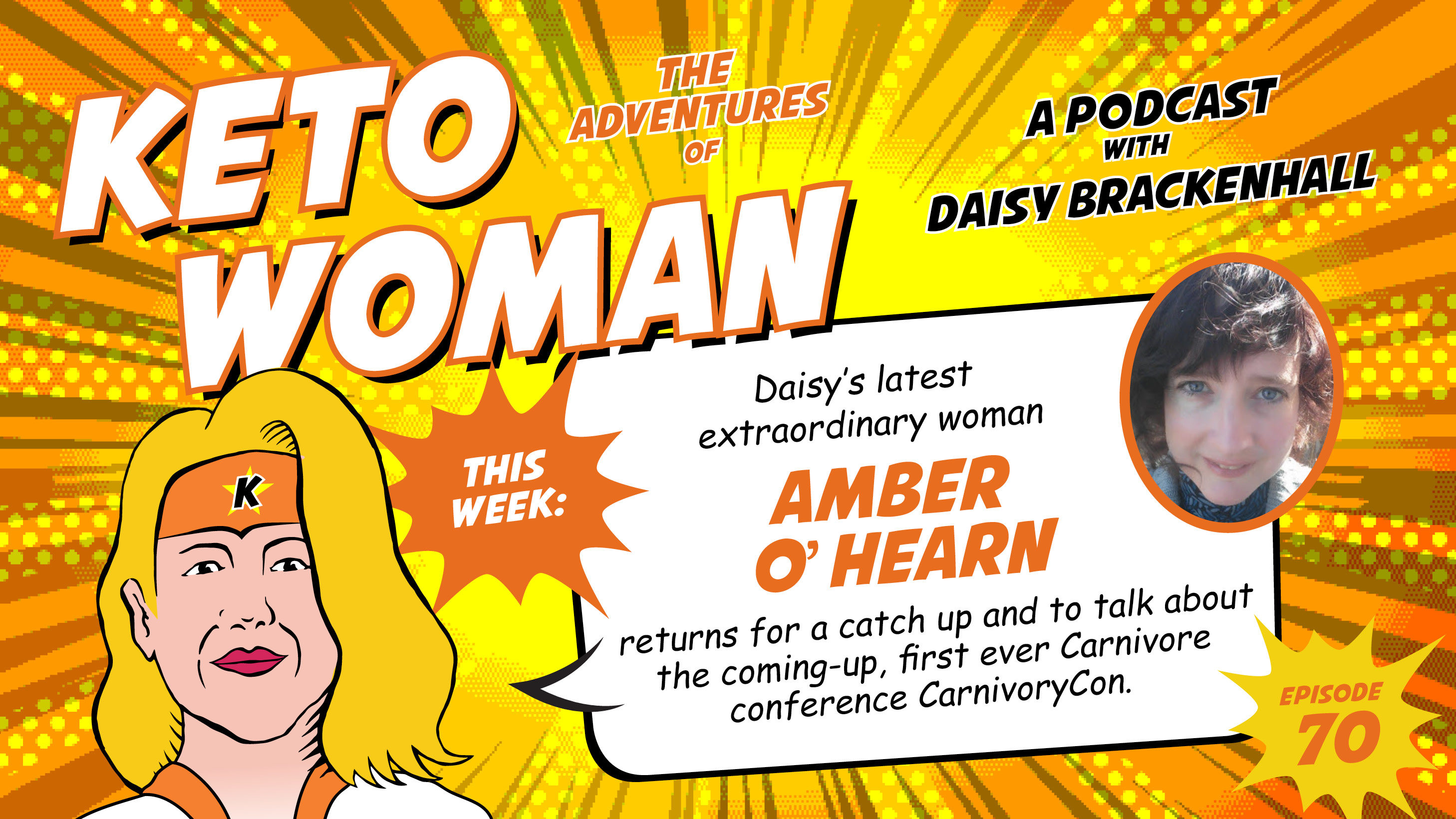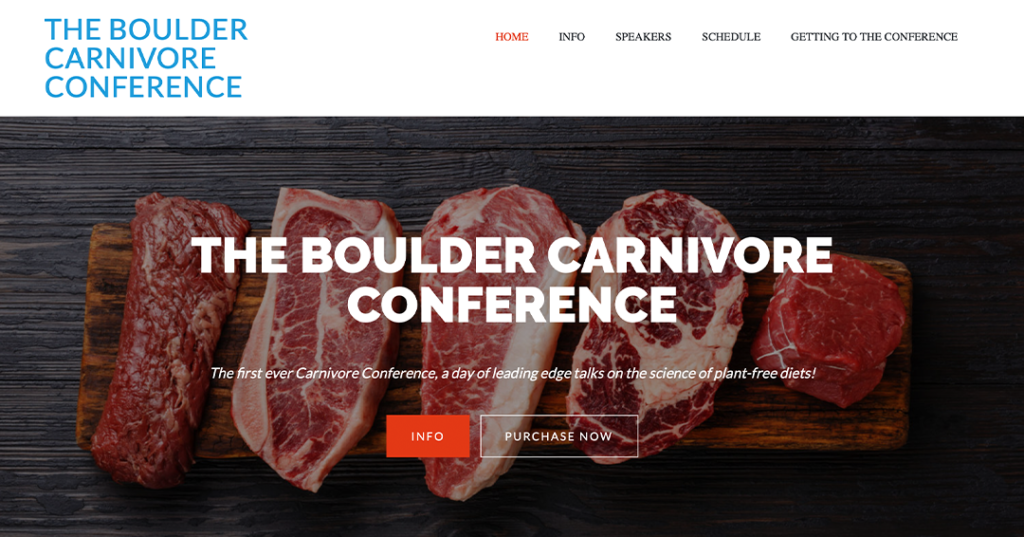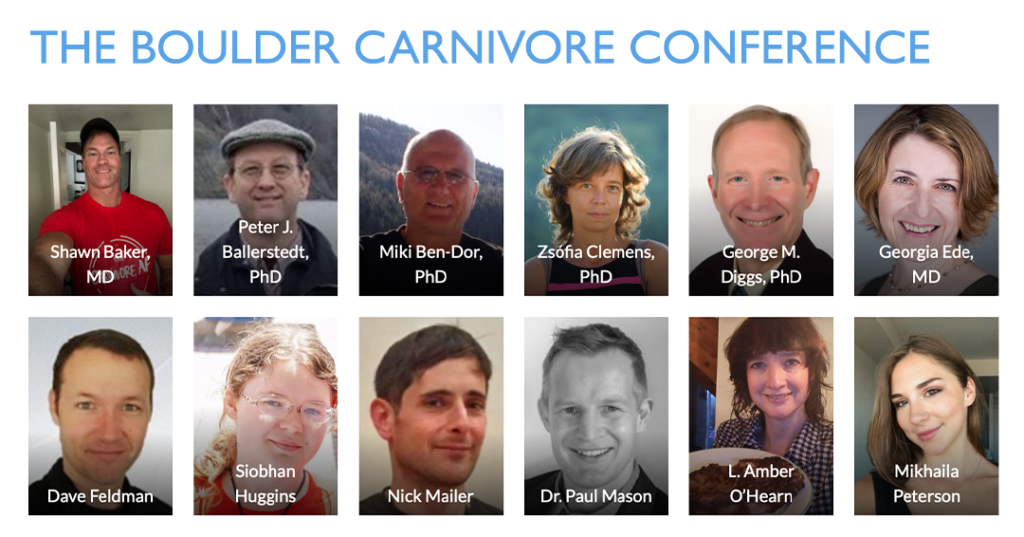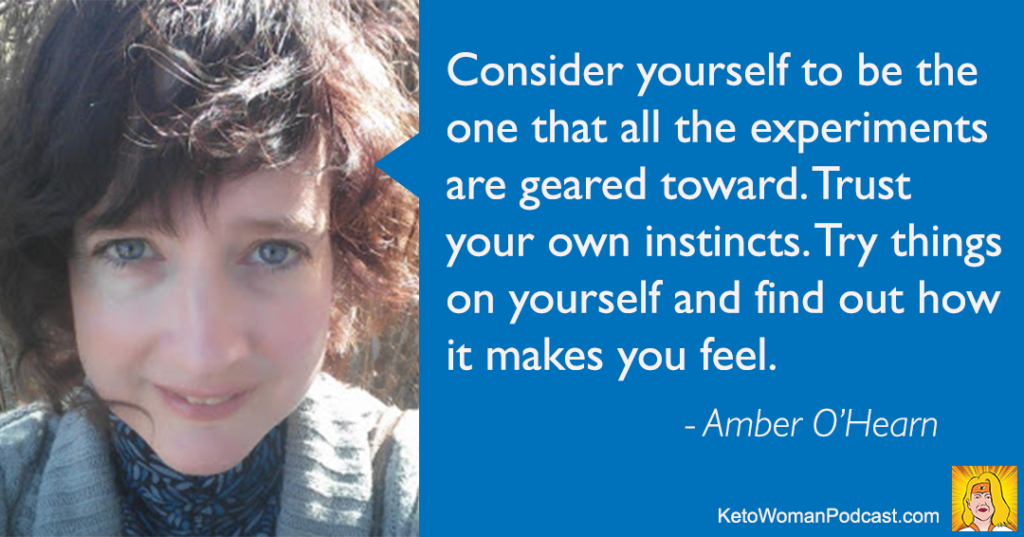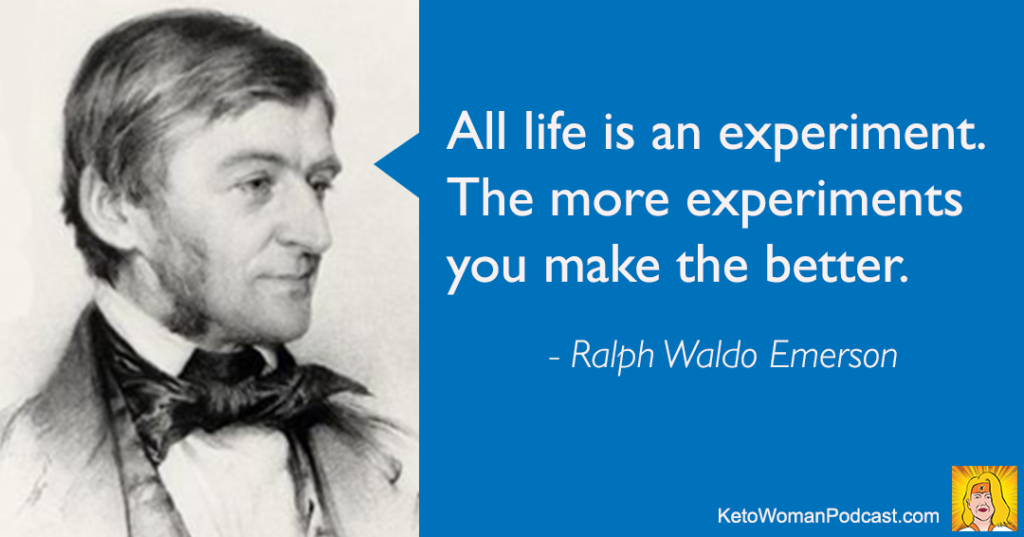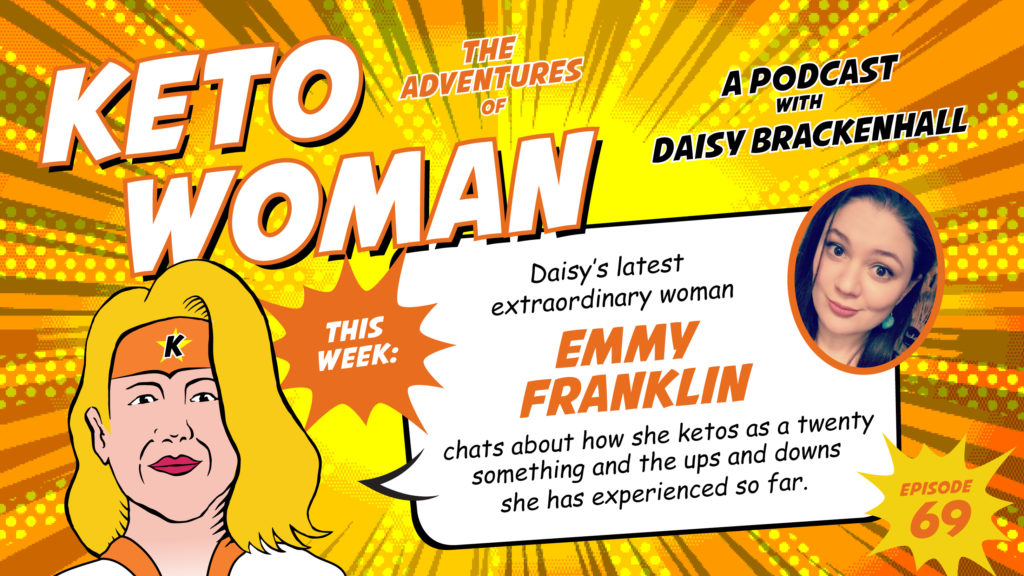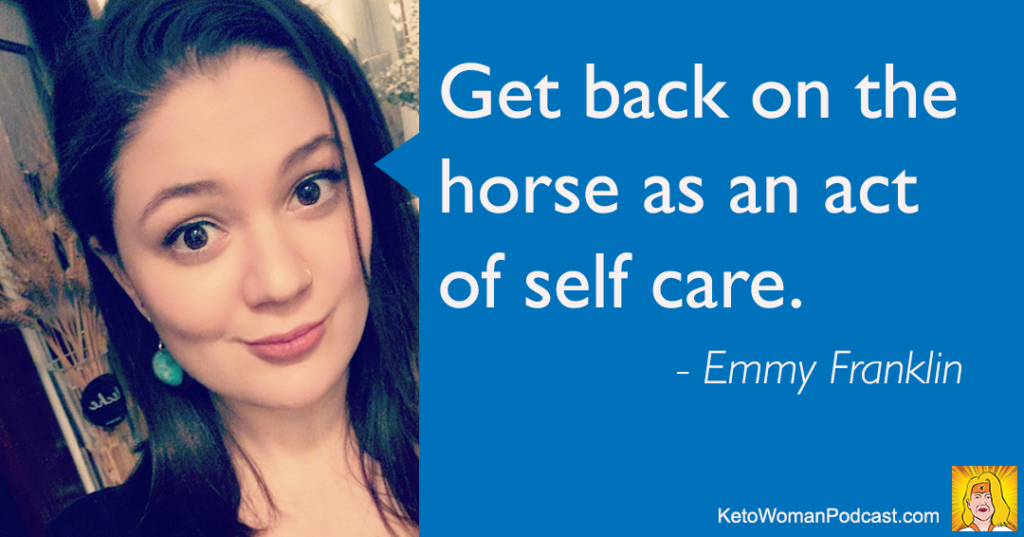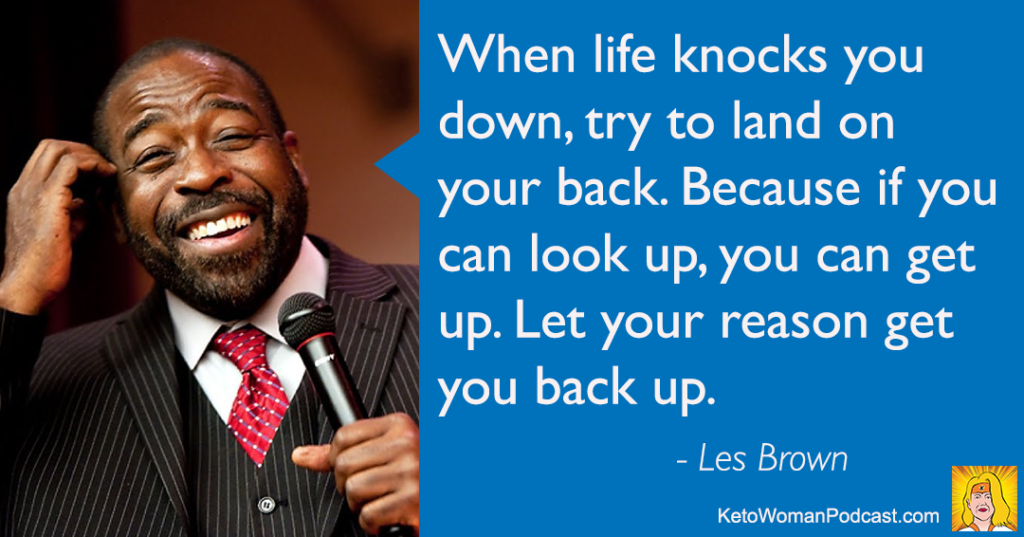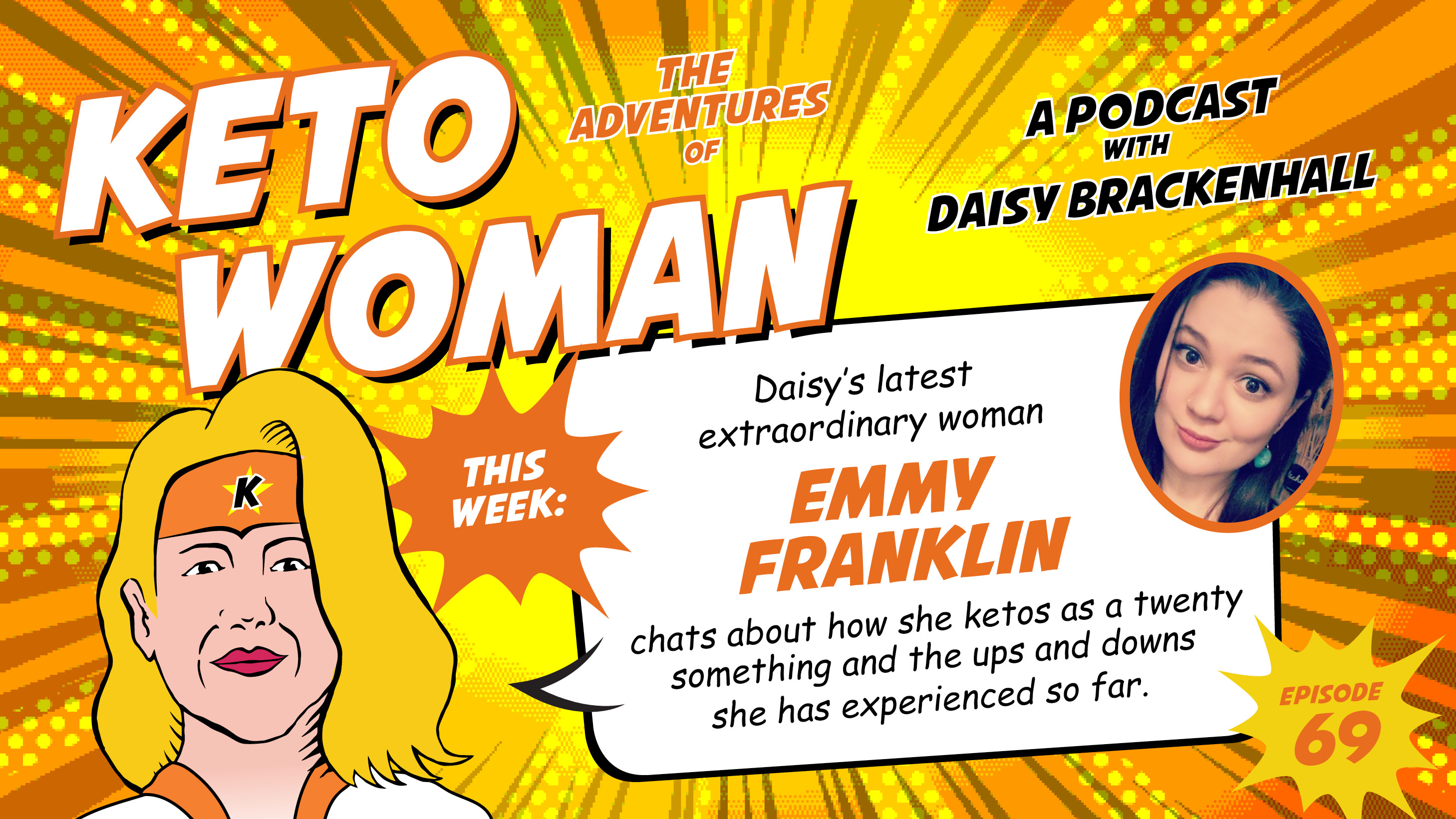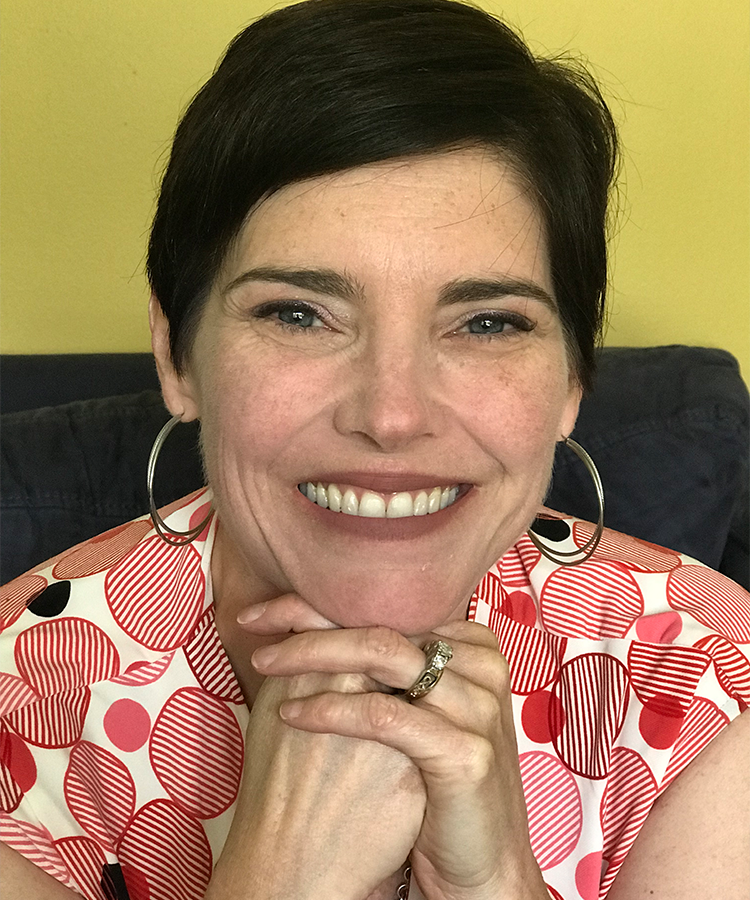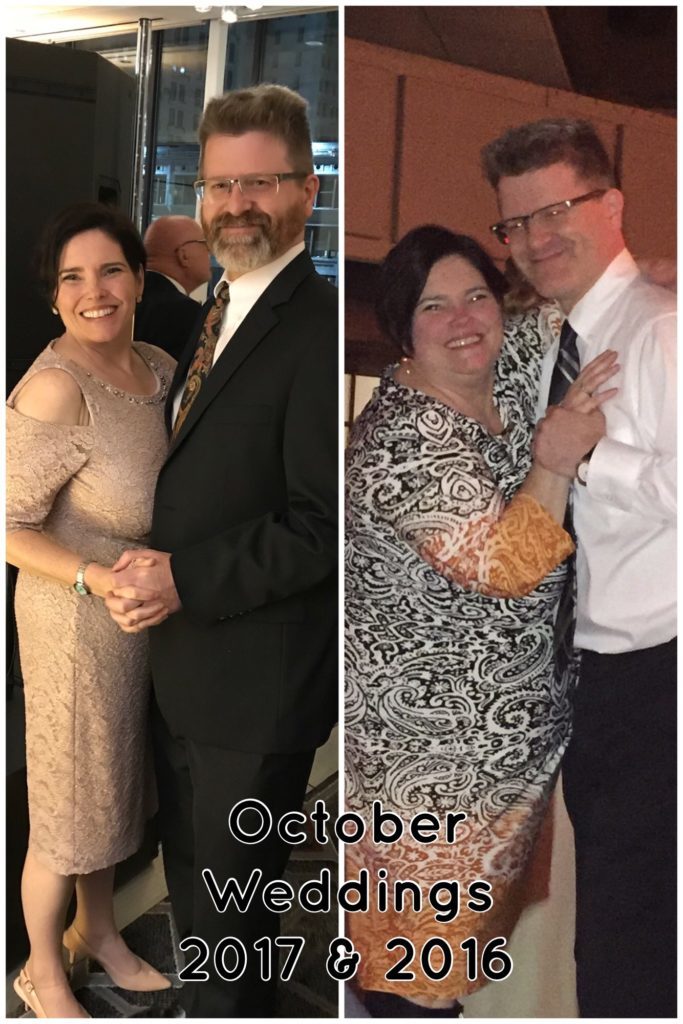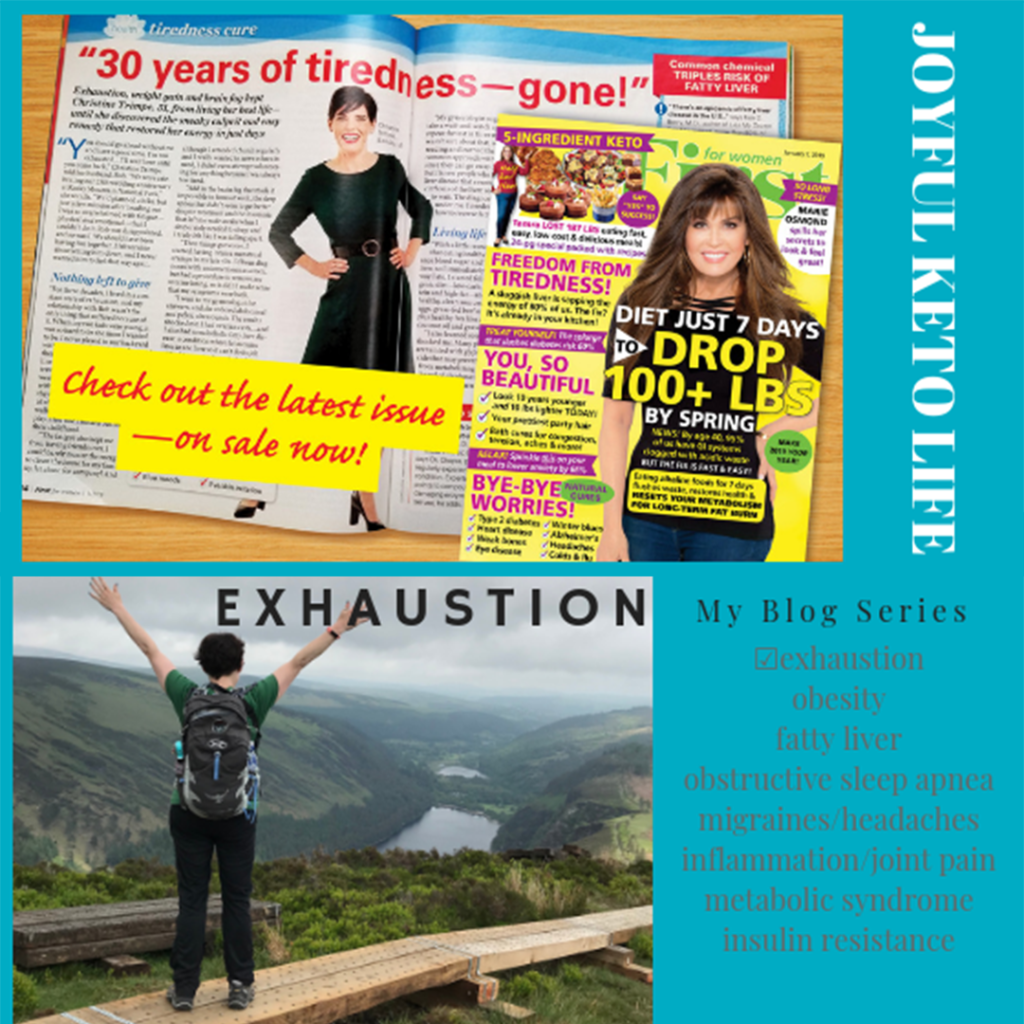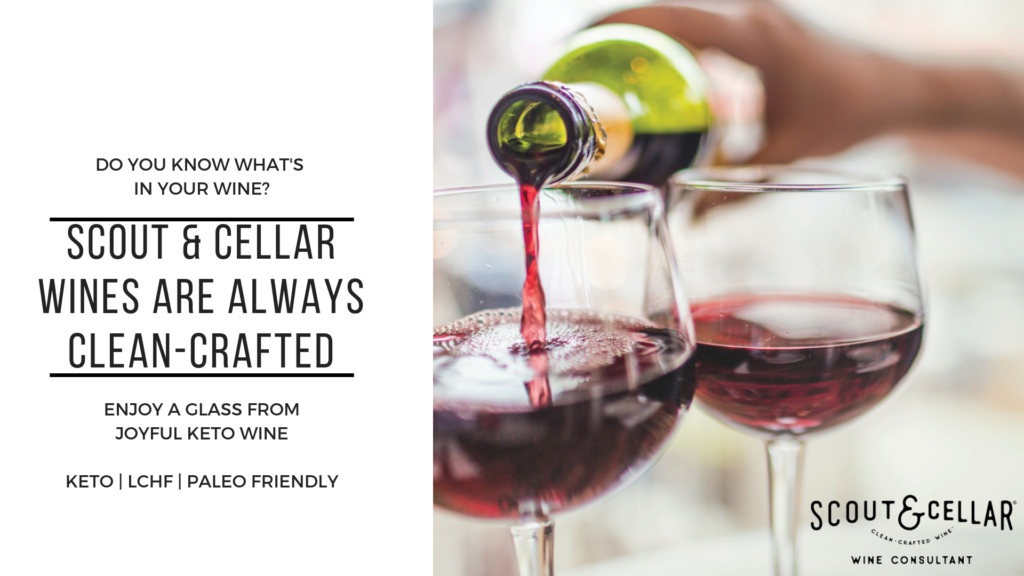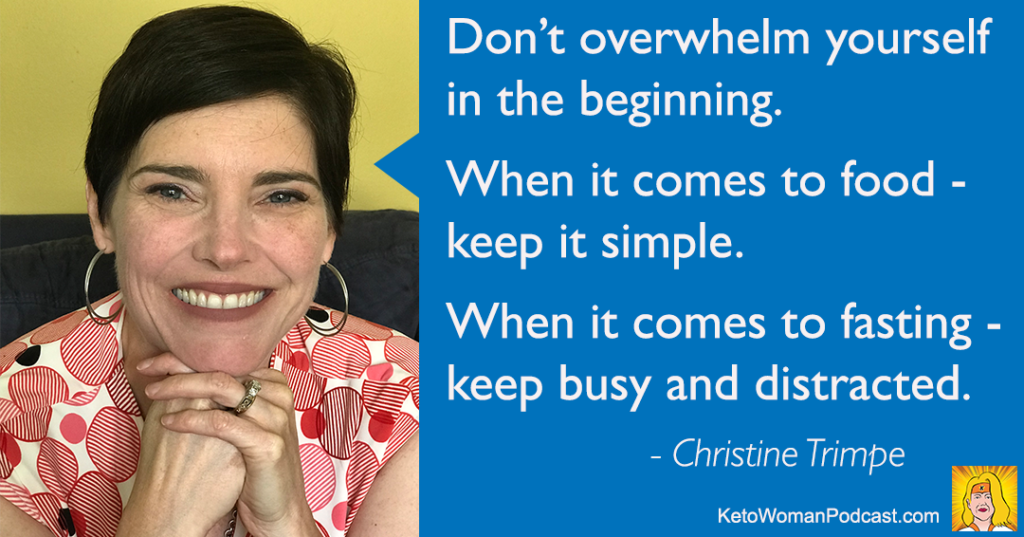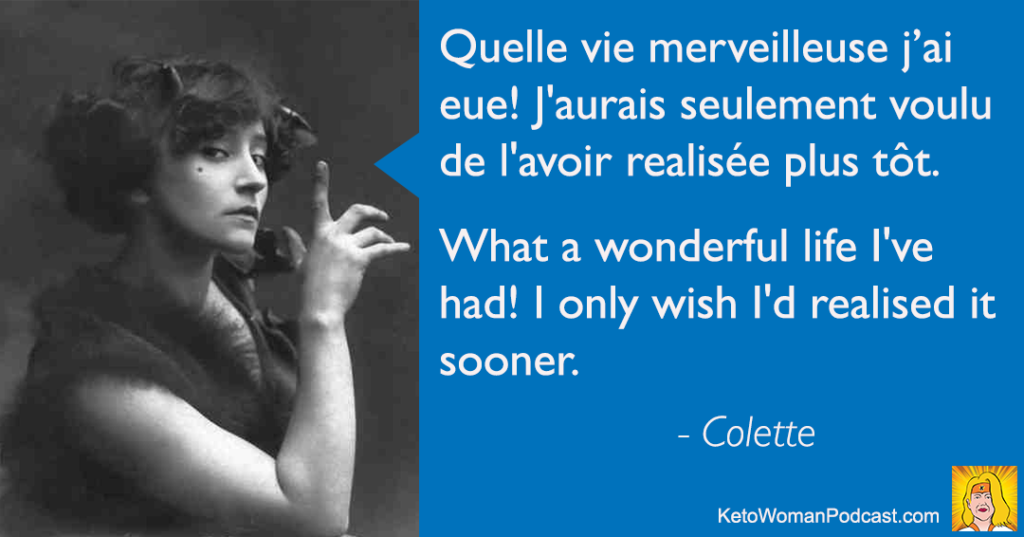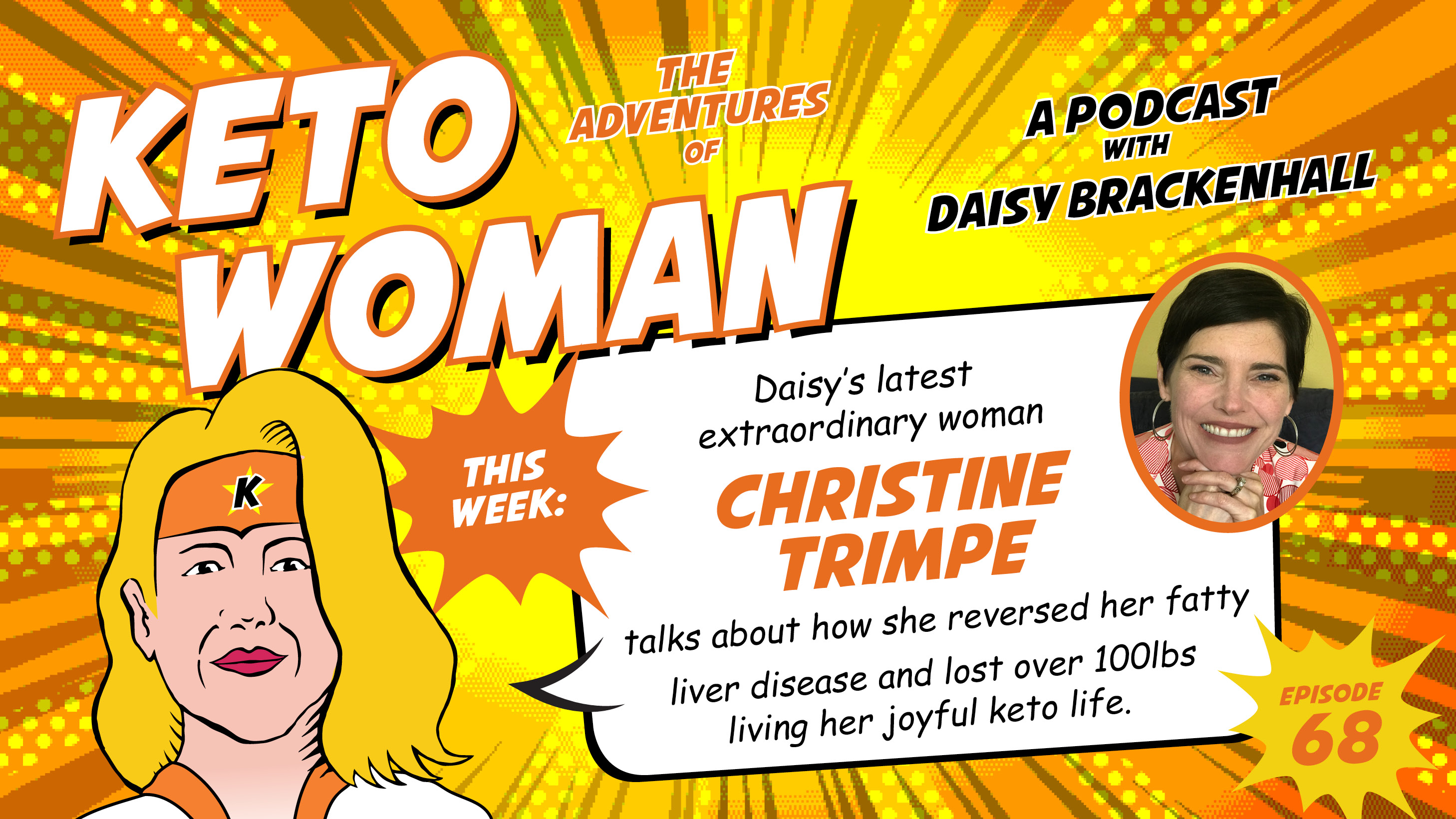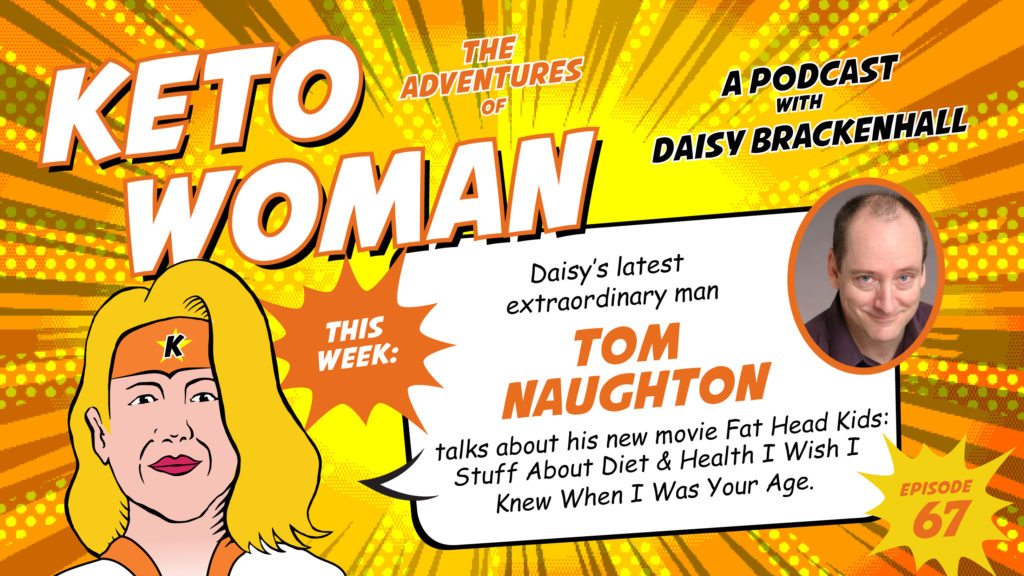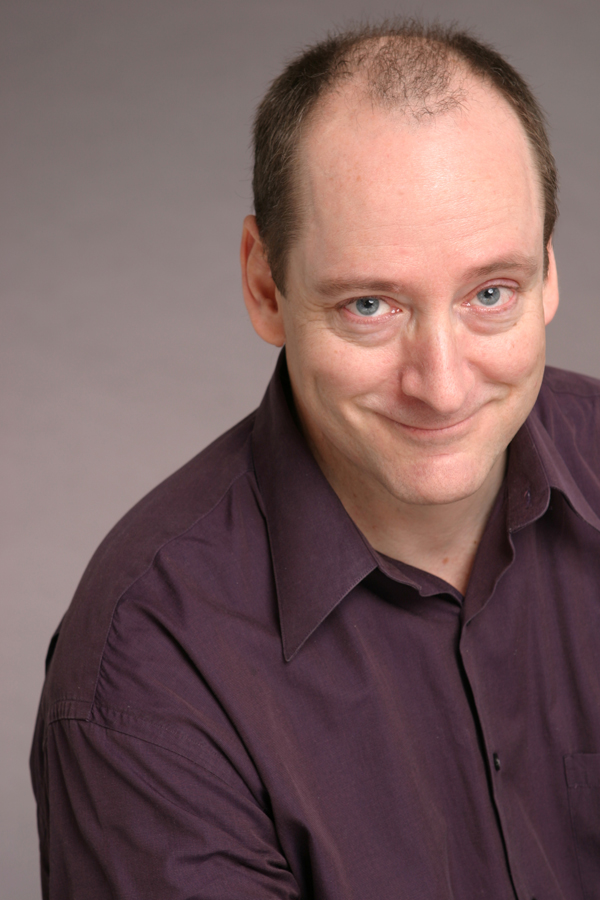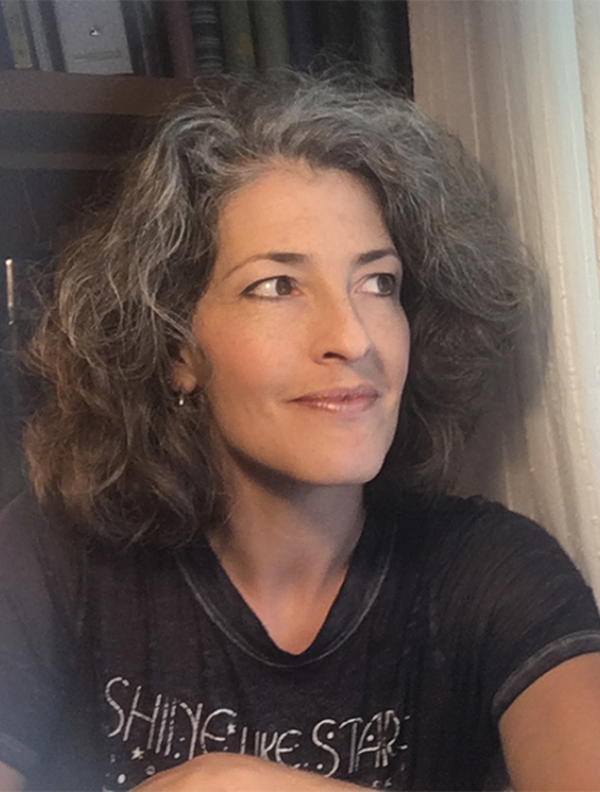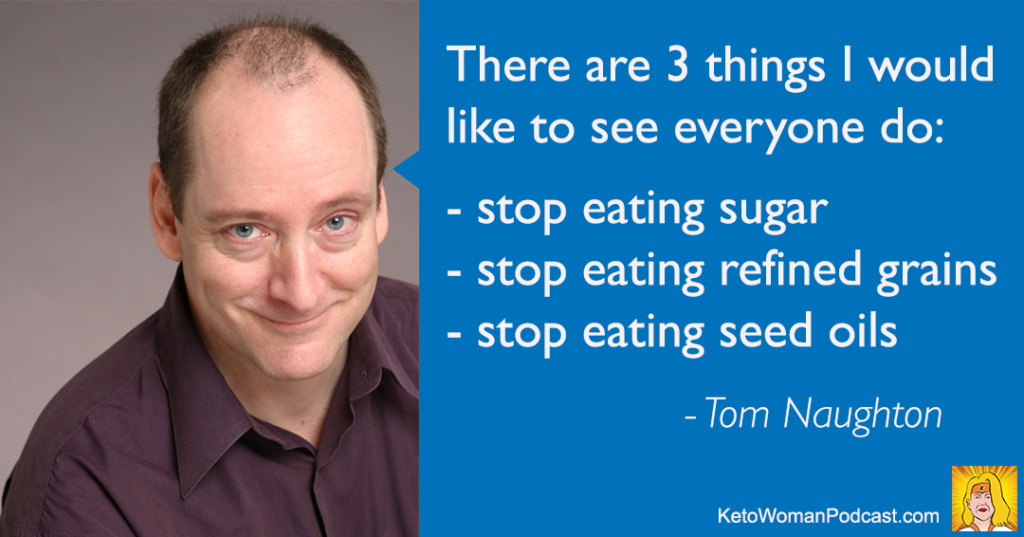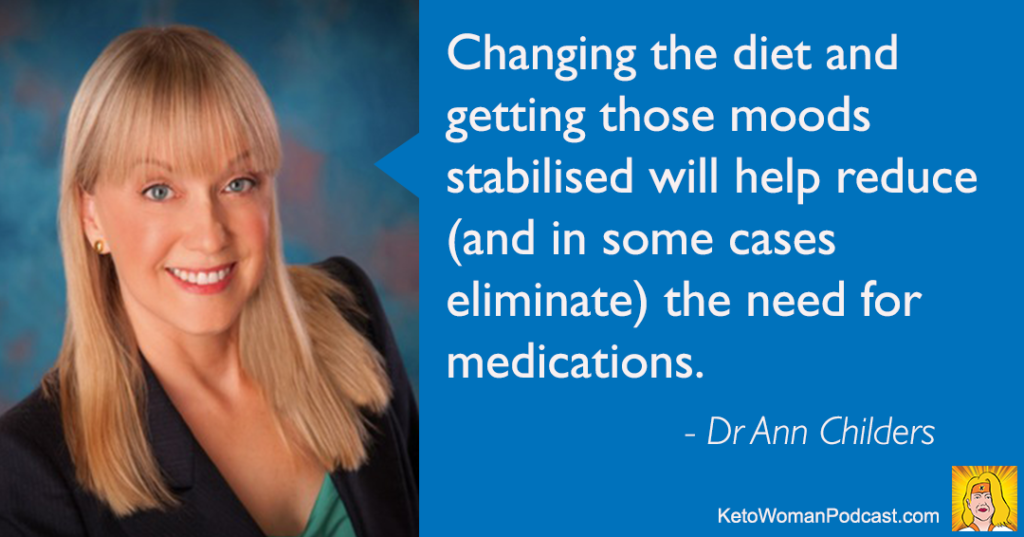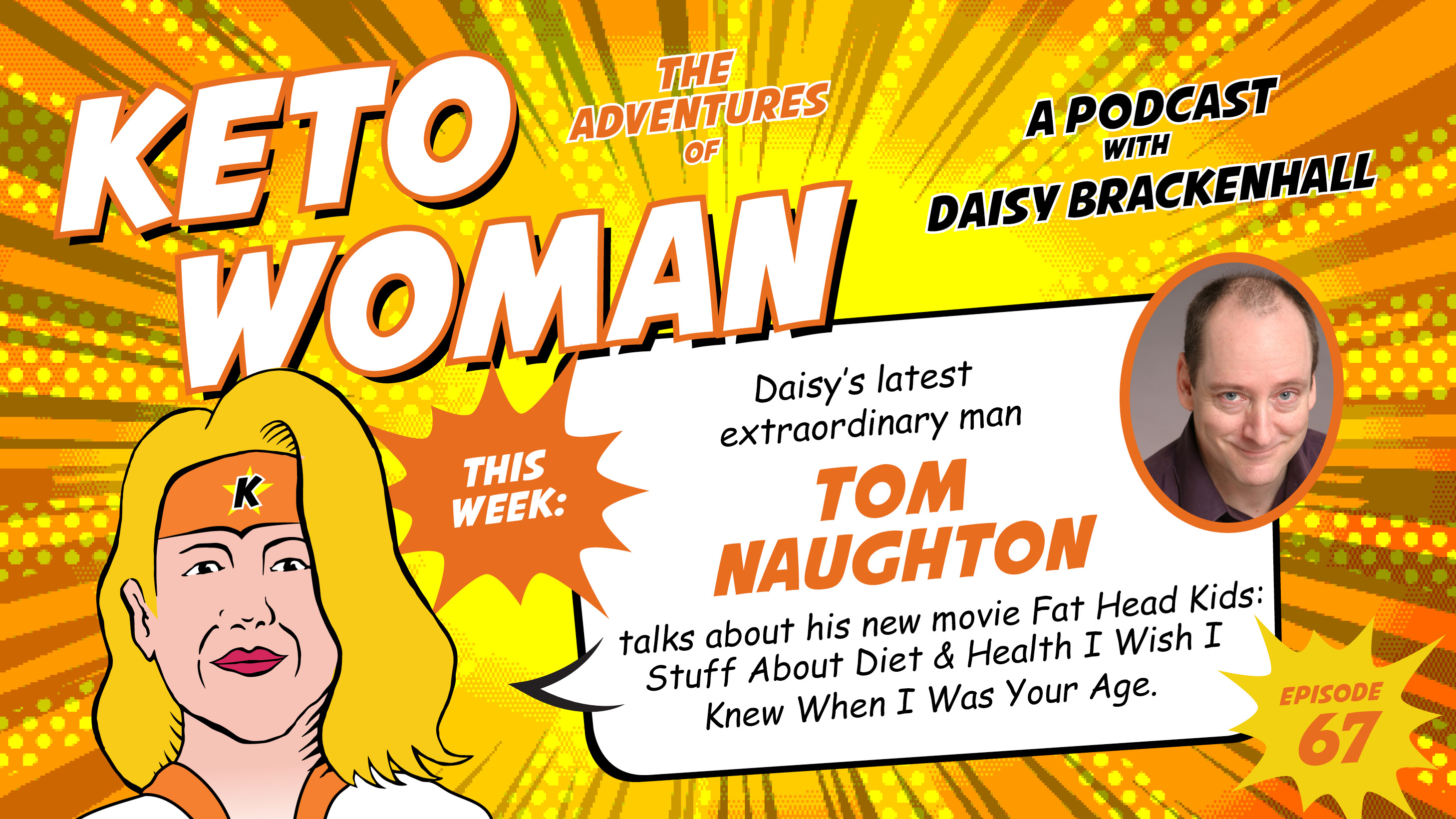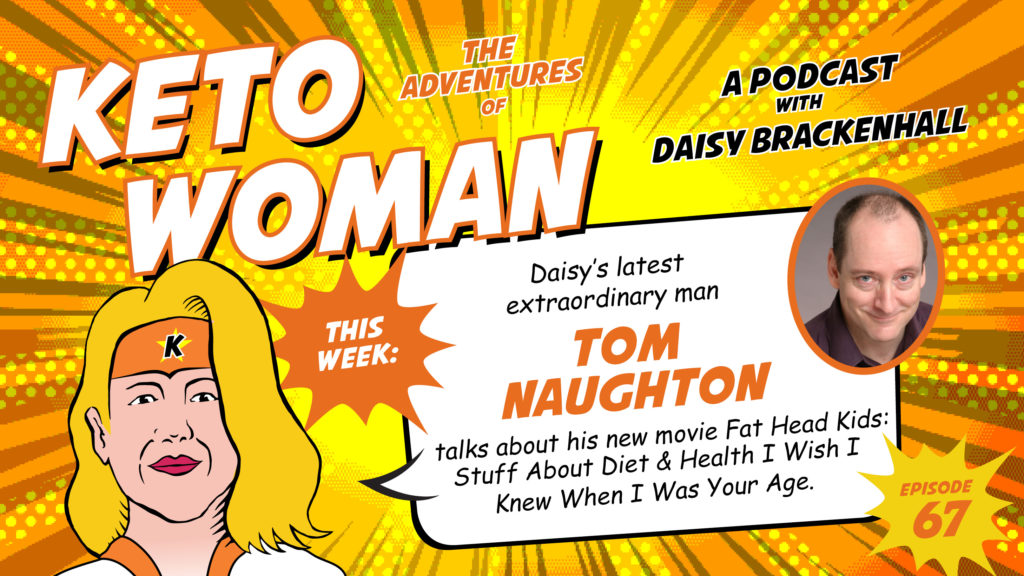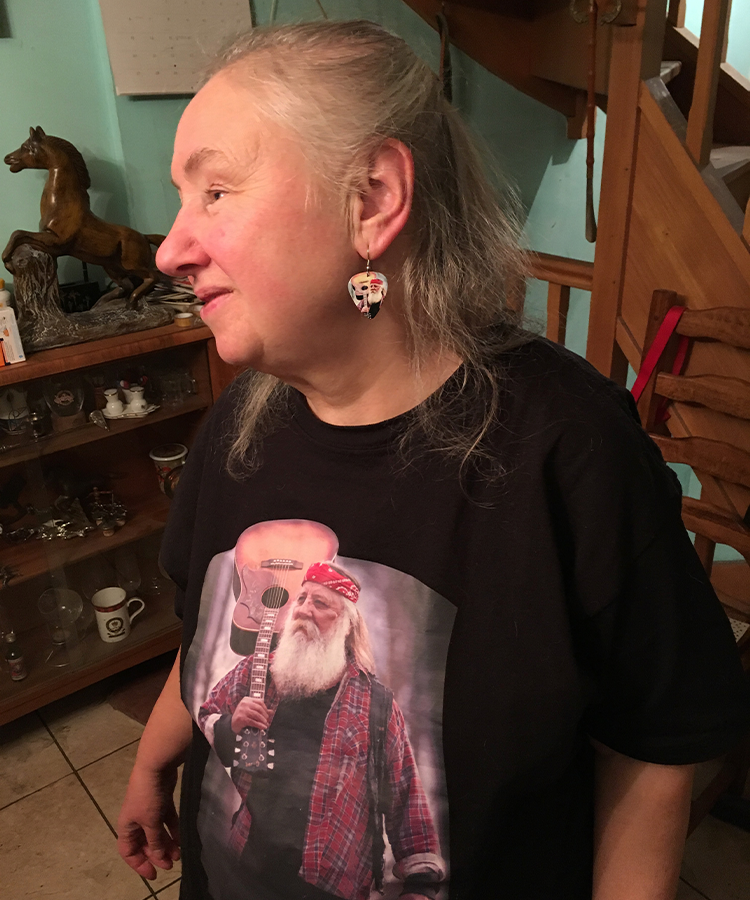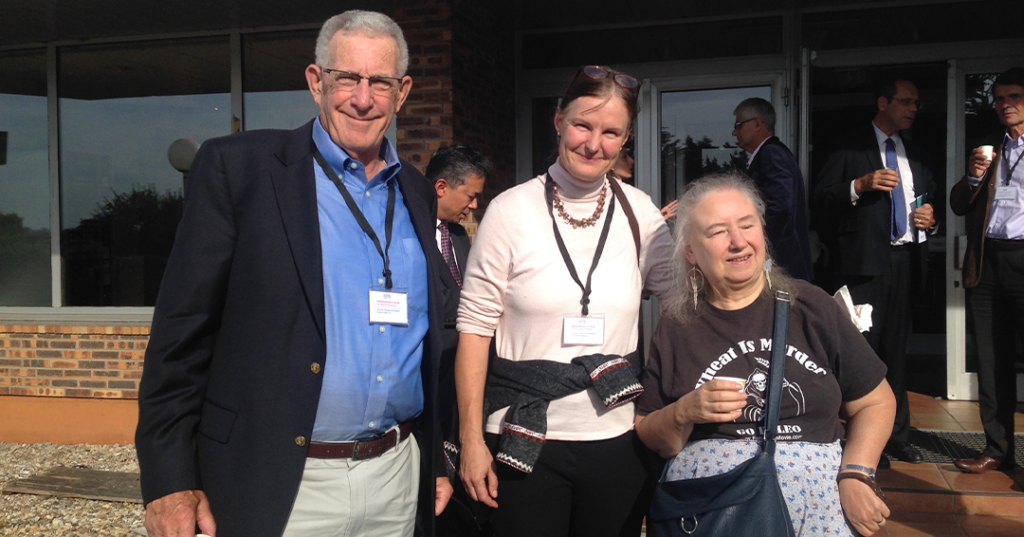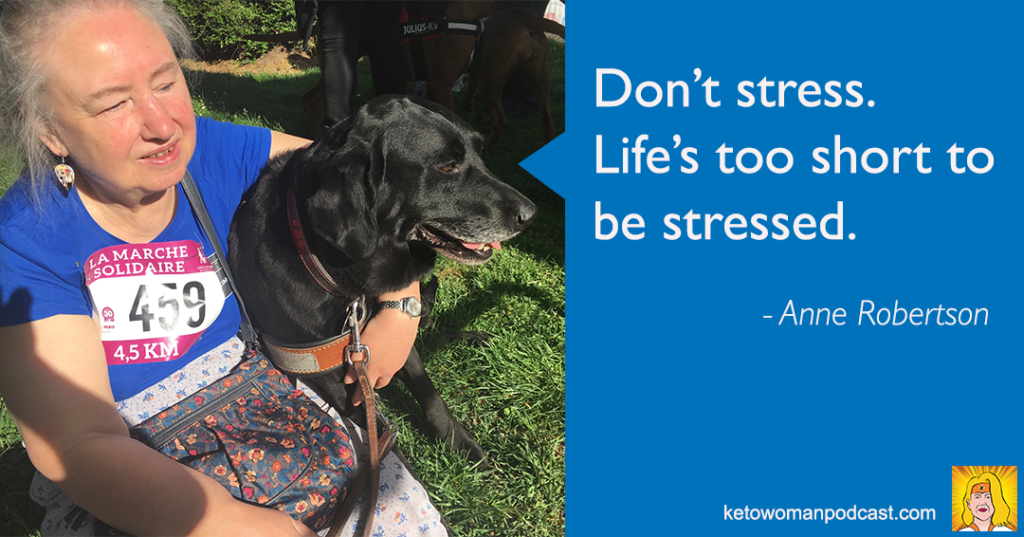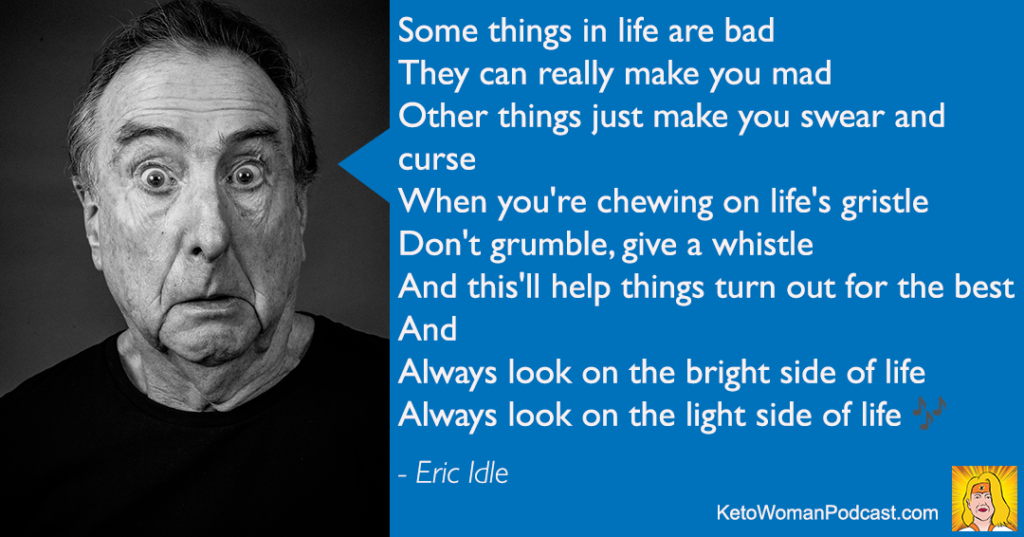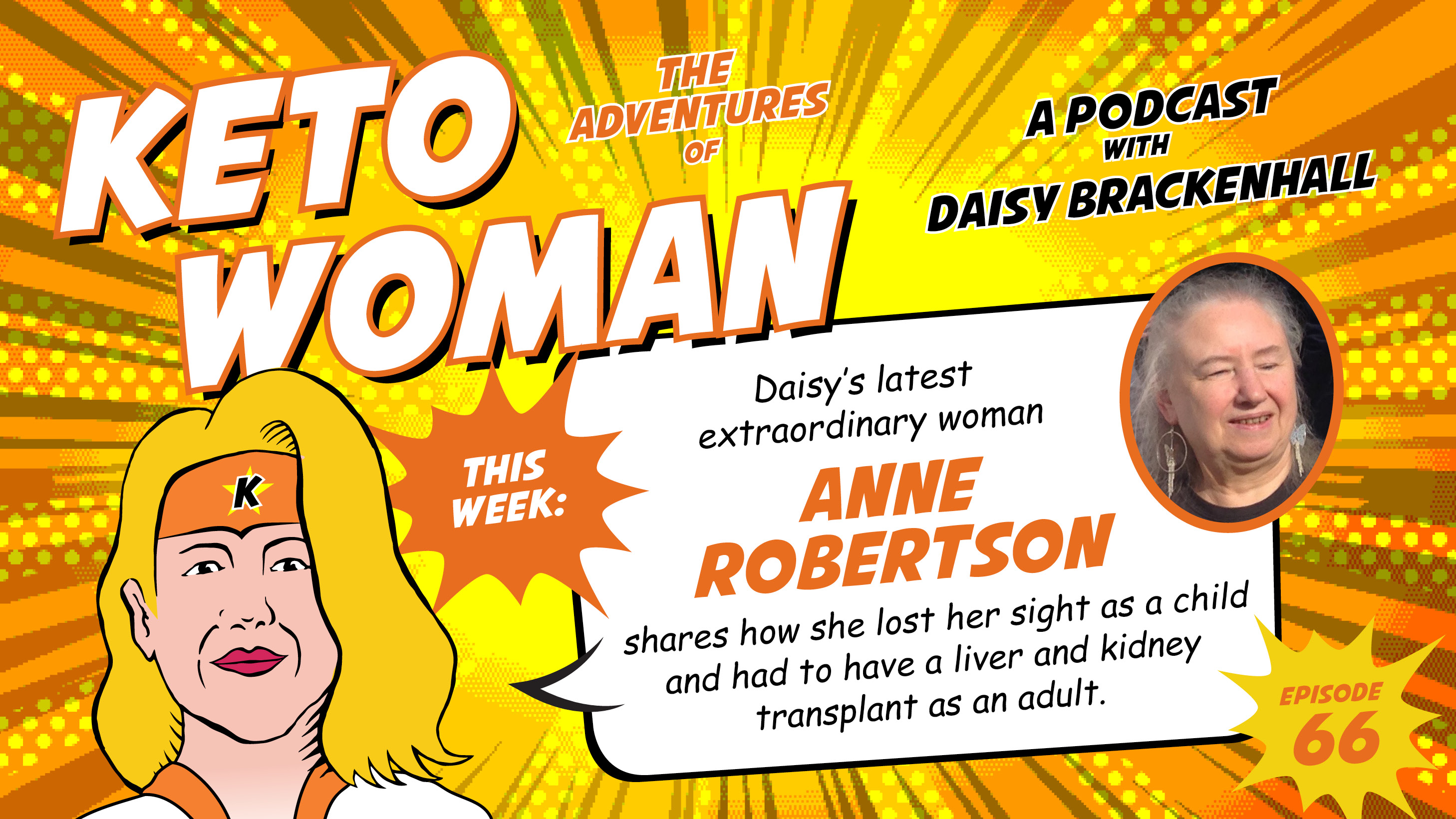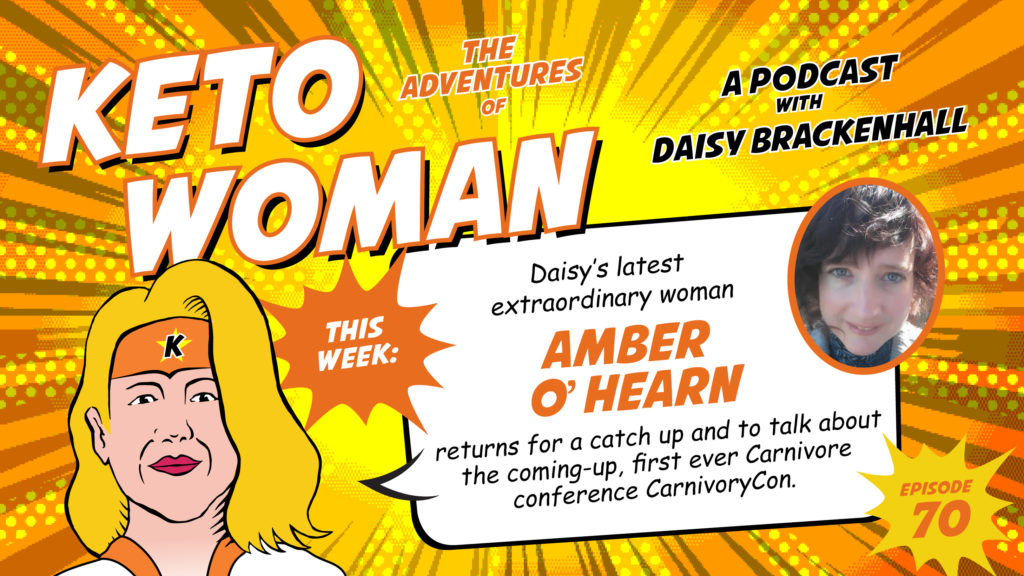
Welcome back, Amber, to the Keto Woman podcast. How are you doing today?
I’m doing great. Thank you so much for having me again.
Well, it’s been a while. I thought it would be lovely to have a bit of a catch up with you, find out what you’ve been doing and also get very excited looking forward to your CarnivoryCon that’s coming up very shortly.
I am very excited.
It’s a well, it’s a sellout basically, isn’t it? It sold out very quickly. Very, very popular.
It is, it did. We have a wonderful lineup and I think it was something whose time had come and everybody’s ready for it.
I think that’s the thing. I remember when you very first mentioned it and started talking about doing it and I think you’re right, there are lots of low carb conferences now, but we really needed a CarnivoryCon.
We did.
So well done for getting it organized because I bet it’s no mean feat organizing a conference.
Thank you. Yes, it’s been a lot of work and I’ve had some good help, but it’s not something I’ve ever done before. So I didn’t know what was going to be involved and I didn’t know how much it was going to sell, so I was just flying blind a little bit. But it, like I said, because it was ready to happen. I think that it made itself happen. It willed itself into being.
Yes. I think there’s probably something in that when you’ve got that ground swell of momentum it will just happen, but it still needs that person, that magic person to sort it all out. So kudos for that.
Happy to be the vehicle.
Perhaps you could tell us a bit about it. Tell us who’s going to be speaking, what sort of topics and things that are going to go on for the day.
Well, I tried to get good representation from various people in the community. So I have people whose stories are really inspiring, compelling. Like Mikhaila Peterson for example, I have doctors, um, for example, I have Dr. Shawn Baker and I have Dr Georgia Ede and they will be talking about various aspects of how the diet works. Oh, and Zsófia Clemens from Paleomedicina clinic. And then I have people whose focus is more on anthropology and evolution. So I have George Diggs speaking about plant biology and I have Miki Ben-Dor speaking about human anthropology, Paleo anthropology. And then I have Peter Ballerstedt who’s talking about environmental concerns. I have Nick Mailer who is a philosopher. I think it’s really important to include philosophy when you’re talking about anything because the whole limits of our knowledge in the basis of what we’re doing needs to be grounded. He’s going to be talking about ethical concerns. And then we have people who are experts on running experiments and interpreting data. So we have Siobhan Huggins and Dave Feldman who will be speaking. I’ll be speaking. Um, I hope I haven’t left anyone out in that roundup, but really I wanted to create the conference that I wanted to go to and so these are the people that I thought would have a great depth of knowledge in the carnivore community and need to be heard.
I love that. It’s really well thought out. I love the balance that you’ve brought to it and really, every single approach to the subject is covered. When you’re saying you’re going to a conference about something, that’s absolutely what you want, isn’t it? To hear about every side of it.
Yes. We have a unique opportunity because it is the first conference that I really wanted to make sure that there was something really rounded. I’ve been going to ketogenic conferences for a long time and every once in a while you’ll hear someone with a more carnivorous perspective, but it’s not necessarily covering everything and that is really why I put the conference together because in the last year or so at the ketogenic conferences that I’ve gone to, there’s been so much obvious interest that many people are asking all the experts about carnivorous diets during the Q & A sessions and some of them had more experience than others and it just seemed very natural.
Yes, that’s a really good point actually. We all know that Keto I think is the top term that’s searched on Google at the beginning of this year. There’s a rise in popularity, but just so there’s a huge rise it seems in the popularity of eating the carnivore way and lots more people seem to be interested in it. Lots more people seem to be doing carnivore experiments, trying it out. You must have seen that. You must have seen this huge swell of interest in it over the last year or so.
It’s been really interesting because I was, I had gotten so used to it being a very fringe idea and frowned upon even in the ketogenic community. So if I happen to mention that I wasn’t eating vegetables, for example, on a Facebook group, many people were really quite discouraging and shocked to hear it and now, now nobody’s really shocked. They might not agree with it, but they know what I’m talking about. And so it’s been really interesting to observe the popularity surge in the carnivore diet.
Yes and I think it’s interesting how a lot of people who have been Keto for a while, and it’s the same thing with how a lot of people start falling into fasting, but I think a lot of people start falling into at least verging towards eating carnivore quite a lot of the time. I can see Siobhan in the background there and I know she is pretty well carnivore these days and I certainly have days where I am. I wouldn’t describe myself as being that way all the time, but I easily have days when that’s all I eat. I’m not, and we will talk a little bit about this because I think it’s an interesting question about what is included in your diet and some carnivores are a lot stricter if you like, that’s not really the right term about what they eat and others, let a lot more products in. But I certainly have days where there are certainly no vegetables that pass my lips and I feel absolutely fine for it. So you know.
Yes. And I think that is a fun way to do it once you know that it feels good to eat that way if you’re not compelled to do it for other reasons, for example, if eating a bit of plants isn’t necessarily going to give you some symptom that you’re trying to avoid then you can go in and out of carnovory and it can be just something you do sometimes or you can do it when you’re wanting to feel a particular way. If you feel your best on carnivore but you feel pretty good, we need some plants, then you can return to that when you really want a tuneup. Well, you know Siobhan and I were talking recently about how it can be a bit of a trap once you’ve tried it. You kind of never want to go back for a lot of people, but just knowing that it’s there.
Well that is the point and we’ve heard your story before and I think like with anything, it’s great to do it as an experiment for something like 30 days whatever it is just to actually see how you feel.
Right.
Because that’s exactly it, isn’t it? So many people try it and then it’s like, Whoa, I feel so good. They don’t want to go back. It’s not a case of making that decision for any theoretical reason. You try it out and if you start feeling a lot better, I mean that’s what happened with you, isn’t it? You just started feeling so much better or your problem started going away when you took the plants away. So it makes sense.
Yes. So it can become something that you decide you want to do or it can just be another tool in your arsenal.
And what would you say? So this is something I see cropping up a lot. Everyone seems to always want rules for everything, I think. And people like to tell other people that they’re not doing it correctly because they’re not following this set of rules. You know, you hear it in Keto, “Oh that’s not Keto because of x, y and z”. Well no actually what you mean is that’s not your Keto. It can be mine. It could be hers. It can be his. But when it comes to carnivore are there stricter guidelines or, you know, I think one of the biggest debates is whether you let in things like dairy and eggs.
Right? That’s an excellent question and I think it’s always going to be fuzzy. The basic definition would of course be a completely plant free diet and that would exclude spices. It would include my plant vice, which is or exclude my plant vice, which is coffee. But certain things are more sort of generally held to be tolerated in the community as normal sort of concessions. But then if you’re actually eating a pickle every day, are you still carnivore? It’s hard to know. But I think for most people, especially when it comes to something that is not actually a plant like dairy and eggs or even beef say including it or not, including it comes down to the combination of personal preference and personal tolerances. If you include eggs in your diet and it doesn’t bother you, there’s no reason why that would make you not a carnivore, but this sort of average typical picture that you might get of a carnivore eating just steak might not be how you do it either and that also doesn’t exclude you.
But there are some people who have much stricter ideas about what a carnivore diet should look like and the clinic that I mentioned the Paleomedicina clinic earlier, they do have a much more restricted forum of a carnivorous diet and that’s for medical reasons. They want the diet to be specifically ketogenic and so they would be eating a much higher fat, lower protein version than you might just come to on your own if you just take what you were eating before and remove the plants from it. And they also exclude dairy because they think that it can lead to more problems. And that certainly is borne out by people. If you talk to different people with different experiences, a lot of people do have trouble with dairy, but for some people it’s not really a problem with their symptoms. So I can talk about my experience, for example, the reason I’m on a carnivore diet is for my mood disorder. I know that dairy products don’t interfere with the control of my mood disorder and I can eat them. But, on the other hand I have, I seem to have a very addictive response to them. If I eat cheese or yogurt, I sometimes have a really hard time stopping that and so that will affect my weight.
Yes. I think dairy is the one that people struggle most with giving up if they feel they need to. So it comes down to basically what your goals are on one hand, and then also just your personal reaction. There’s not this, I’m sure they will always be people who have a rule book because there just are and like you say for certain settings, like a clinic setting, it makes sense that there is a set of rules, a set of guidelines because you’re doing it for a specific reason and presumably you need the consistency for for your treatment plan. But what are your feelings on dairy when it comes to I suppose specifically weight loss because that seems to be the problem that people have. It seems to be something that if people are struggling, so if one of their goals is weight loss and they’re experiencing a plateau, one of the most common suggestions is have you tried giving up dairy?
And I guess one of those reasons could be that slightly addictive quality so you have a tendency to overeat or like I will tend to pick it, it snack on something like if I’ve got cheese in the fridge, it’ll be very easy to go and cut a piece off and have it as a snack during the day. But are there any other reasons that you think that dairy can create problems? I know Georgia Ede talks about the fact that it has the growth hormones in it because it is this superfood for growing young mammals basically, getting them to be big and strong as fast as possible. You can see how it has the potential to affect us in the same way.
Yes, that insulinogenic property I think is something that we need more experimentation on because I have read that dairy products have a higher effect on insulin than other sources of protein, but I’m cautious about interpreting those because the effect on insulin that any given food has depends greatly on what metabolic state you’re in. So, for example, if you just take protein from beef and you give it to someone who is in not an a ketogenic state, it affects their insulin and their glucagon far more than if they were an a ketogenic state to begin with. So it becomes very complex. But I’m definitely inclined to believe that a food that is designed for an animal who’s growing could have more of those capabilities of inducing growth. So there’s good reason to hypothesize that particular effect. The other thing that I have heard about dairy and I haven’t looked into much is that it contains a kind of opioid and therefore may have an addictive response or addictive quality because of the opioids in it, but I don’t know a lot about that aspect of it.
Yes, I read some articles about that and I must admit, I could certainly see the logic in it because yes, I do find it quite addictive.
There’s another thing that has been talked about with dairy in this community and that’s Steven Gundry has said that for people with ApoE4 they would be more sensitive to dairy. He has put that together with saturated fat and I don’t know that he’s actually looked at the difference between saturated fat coming from other animals and saturated fat coming from dairy, but he definitely recommends against dairy for those with ApoE4. My only hesitation about bringing that up is that I think his concern has to do with its effect on cholesterol and in particular I think raising LDL, and I’m not particularly persuaded that high LDL would be a problem, but it’s a connection that might be worth looking into.
And that’s very interesting. I haven’t read the report properly, but I did plug my DNA into one of these reports and my memory is not working very well so I can’t tell you which one it was, but I do vaguely remember down that list something that surprised me quite a lot. And it must’ve been something to do with that gene because it said that, and this is just laughable, that I had a certain sensitivity to saturated fat, saturated fat could cause problems for me and I might be one of those people that is not suited to a ketogenic diet and I thought, well that doesn’t seem to be the case, but…
Might actually be the opposite.
So that was an interesting thing so maybe that ties in with the same. I have been told I should avoid dairy in the past and I have found from doing an exclusion diet that I am a little bit reactive to lactose so I certainly do better if I stay to the zero or very, very low carb forms of dairy. I do a lot better if I go higher, things like cream and cream cheese, I’m okay but I get a bit catarrhy basically that’s the level of what happens so it’s something that I can put up with but it’s definitely there so I definitely have a bit of a sensitivity. And you touched on something there about insulinogenic qualities of dairy and that’s another one of those number one questions that comes up. I don’t really worry about how much protein I eat, I don’t really think I need to.
I’ve always been metabolically flexible insulin sensitive, so it’s not really something that I concern myself about. But, for anyone who feels like they need to keep their protein within fairly strict parameters, if they’re thinking of trying carnivore, the first question is what’s going to happen when I eat all that extra protein? Because of course you’re going to have to eat some extra protein if you’re not eating anything else, your protein intake is going to have to go up because, well, it’s not all you’re eating is it because you’re eating fat as well. But you know what I mean? And the first thing obviously that people start shouting, “Oh well, you know, I’ve heard that protein turns into glucose if I eat too much of it, and so that’s automatically going to be a problem when I started eating carnivore. I can’t only eat my 50 grams or whatever it is a day.” What have you got to say to people who are asking that question?
Well, the funny thing is that a lot of people who go carnivore actually end up finding that there ketosis levels go up and not down. It’s a little bit counterintuitive. One of the reasons I think might be just the plain fact that you’ve taken some albeit small level of carbohydrate and reduced it to nothing. So if you, for example, were eating 20 grams of carbohydrate on your ketogenic diet and then you dropped all of those 20 grams of carbohydrates, the reason that people are worried about protein turning into sugars, that those amino acids can be used for gluconeogenesis, but only in most animal products, only about half of the amino acids even have the capacity to turn into glucose. So if you’re going to think about the maximum hit that you could get if the conditions were right, because I think that it really does depend on the demand of glucose more than just the supply of the raw materials.
But if you’re just going to take a worst case scenario, you would need probably 40 more grams of protein before you could even make up for those 20 grams of carbohydrate. So that means that your tolerance, your capacity to eat more protein just went up. But there is more to it than just that. The ketogenic stimulus really comes down to the balance of insulin and glucagon that’s going on in your bloodstream and you’re signaling system. And so, as I mentioned before, if you give someone who is not Ketogenic, a big serving of protein that’s going to have a huge effect on their insulin it’s going to make it go up way, way high and it’s not going to have much of an effect on the glucagon and so suddenly you’re going to be in this situation where the signals for ketogenesis are even lower, there’s much less call for ketogenesis.
But if you give that same piece of protein to someone who already has this very well balanced, close to one ratio between insulin and glucagon, it turns out that it actually doesn’t perturb that balance so it has only a small effect on the insulin to glucagon ratio and you stay ketogenic. So it’s true that if you keep eating protein, it will gradually, gradually change that ratio and at a certain point it’s going to impact your ketogenesis. And if you’re coming from a pre diabetic or diabetic situation where you’re a basal insulin levels are already a little bit higher then that balance is going to be tipped earlier. But in general, most people are quite surprised to find that they can eat much more protein than say that minimum level that sometimes is advocated for and still stay in ketosis. And that seems to be even more true on a carnivorous diet and we don’t exactly know why. One other thing that could be contributing is that if you don’t have enough carnitine, carnitine is involved in bringing fatty acids into the cell for burning. If you don’t have enough carnitine, then your ability to burn fat can be lowered. And so if you’re suddenly eating a lot of red meat, your carnitine levels are going to be completely sufficient and you may have actually more ability to burn fat and therefore produce ketones. So all of those things combined seem to at least observationally results in actually higher ketosis on carnivore, which is very surprising.
Well certainly as an n=1 I can vouch for that. What Is most guaranteed to bring my ketones up and my blood glucose down and I operate very well in, Annette Bosworth talks very much about the ratio of ketones to glucose and I certainly operate best within a certain ratio and it’s that GKI ratio of sort of 1 to 2 is where I do best so actually, you know, fairly strict, but it’s down in that ratio that I get fewer migraines and my mood is better and certainly if I want to be losing weight, which is not my main priority, but yeah, there’s a bit I’d happily lose, that’s also where I need to be to do that. But the most important thing for me is the mood and migraines. And if I get up into that zone where a lot of people are quite happy, you know, they’re in ketosis and they’re doing very well and they’re losing weight, whatever it is for them, for their context. No, I need to be a bit further down. But to get down there, it’s just reducing those carbs right down. That’s what gets me there. And yes, there’s a balance. I probably do eat more protein, but yes, just as you were saying that’s certainly true for me, all it does is put my ketones up, certainly not down.
Interesting, isn’t it?
It really is. Yes, and I think that’s what it comes down to. I like experimentation. I encourage everyone else to just try different things and not be doing it so much for numbers on the page, just be doing it to see how you feel and when you start feeling good, that’s what you want to carry on doing, isn’t it?
Yes. We have all these studies. In carnivore we don’t really have very many studies, but you look at a study and the main purpose of the study really is to give you an idea of what might work for you because we know that individuals, even within that study, are going to vary in their response. And what the study is trying to tell you is, is this worth pursuing based on how much of a difficulty or a cost or risk it would be to try this intervention versus how well it’s gonna pay off. And so if you’ve done something yourself and you already know, then that obviates the need for looking at a study at all because you’ve already hit the whole purpose of looking at a study, which is what’s going to happen to you.
That’s right. That’s what it’s all about. It’s your own context, your own experience and your own goals. I know you’ve got Siobhan sitting there behind you at the moment and she, I don’t know if she’s changed her favorite meal, but it always used to be pork of some description and cream cheese, so she certainly likes to mix it up. What about the rest of your household? Do they eat same way as you or slightly differently?
Well not exactly. My children mostly, at least at home, they eat low carb. They will eat vegetables and they like a little bit more variety than I would give them if I were just giving them exactly what I had. So sometimes I will make for them meals such as a chicken coconut curry is one of their favorites which has coconut milk and it has onions and spices as well as some chicken. They like stir fries and they really like bell peppers. One of my son’s favorite meals is salmon with carrots and onions so that’s not even necessarily super low carb, but I would definitely have to say that everybody here eats quite a lot of meat and nobody’s deficient in that way.
Do you get any interesting interactions with the school? I know I’ve had some members in my Facebook group have had some real troubles with the school, you know, disagreeing with the way they feed the kids and having some tussles with the school insisting on giving them certain foods or you know, even complaining to the parents about the way the parents are feeding their own children. Have you ever had any kind of interactions like that.
I have unfortunately. One problem is that the schools, I think they’re dealing with a lot of blood sugar roller coasters and so it’s become, it wasn’t this way at all when I was a child, but there’s just available sugar all the time, not just in the cafeteria, but also the teachers and staff will routinely have events or reasons that they find to have what they consider to be healthy carbs often so muffins maybe or granola bars or fruit and that’s constantly on offer. So I have one child who, in middle school, he most of the time was actually aiming to be on a low carb diet because he knew it felt best, but he really struggled with the temptation, let alone talking about feeling left out socially, but just having that being offered and offered in a way I think that the teachers kind of implicitly disapproved of the desire on his part not to eat carbohydrates because they knew about it.
Then the other problem is if he ever for any reason went to the nurse’s office, they would immediately say, look, you haven’t had any food. So they would offer again like maybe a healthy granola bar. And this child in particular really didn’t like eating at school. He didn’t even like taking a lunch. So he would have a protein and fat-heavy breakfast and that would carry him through the whole day until he got home after school and then he’d eat again and he wasn’t hungry but the teachers knew that he hadn’t eaten and would think that this was a huge problem and so it was always a frustration. Now that he’s in high school, he has a lot more independence in that way and so it’s not as much of a deal.
That’s really tricky, isn’t it? I certainly understand the temptation side of it and of course once you’ve given into it, it’s then even more difficult to avoid. It’s so commendable that, you know, he’s come to his own decision on that and it’s his own motivation. To have that potentially undone by teachers and this whole snacking culture, I can remember when I was at school, it was just starting to come in. You know, we were just starting to be encouraged to bring a snack of some kind for the breaks, but kids just, they don’t need it do they? Even the tiny ones, they don’t need to be eating every hour. You know, you don’t have to be carrying snacks around all the time. They’re not going to pass out if they have to go a reasonable time between meals. That is what we’re designed to do.
Right. Yeah. It’s very frustrating.
But yes, I can totally see that. The teachers freaking out at the thought of him not eating at all at school during the day. It’s probably a very good idea because quite often the things that are on offer are just not going to be the best choice.
Yes, exactly.
It sounds like he’s through that struggle a bit, but yes. Interesting question and this pushing whatever the agenda and propaganda is. On that subject, what do you make of all this latest hoo-ha around the Lancet spreading vegan propaganda allegedly?
Oh gosh Daisy, I find it very sad because, well, I know that one of the people who’s behind the funding of that project actually has a connective tissue disease an autoimmune disease that’s considered incurable and that might actually benefit from a carnivore diet. But besides that terrible irony, we have data from countries who live on a grain-based diet with greatly reduced meat intake. Those are the third world poverty countries of today and they have severe malnutrition problems that could be solved by adding more meat into their diet and also by reducing grains because a lot of the nutrient deficiencies that are induced are actually induced by the phytates and the fiber in the diet that they are forced to eat out of poverty. And to think that the wealthy countries around the world who have access, have the ability not to eat that way, are now considering trying to eat that way for health is just awe inspiringly stupid. I mean have we learned nothing? I find it almost unfathomable that this is what we are now advocating for people for health
And it’s more with the, you mentioned the problems with the grains, they can actually, even if that person who’s suffering from malnourishment is eating some good forms of protein and vegetables, it can be negated can’t it by those grains? So it’s not only you’re having problems with eating those things in the first place, but you’re actually taking away some of the benefits of the small amounts of the good things that you are eating.
Yes, absolutely. I was looking through a document on fortification that was put out by the WHO and the FAO, the Food and Agriculture Organization, and they were talking about the most common global deficiencies that we need to address perhaps through fortification and they characterized diets that would induce certain deficiencies. They would have a little paragraph of what’s the diet that gives the highest risk for, for example, zinc deficiency or B vitamin deficiencies or other deficiencies, vitamin A deficiencies, all of these things that are causing huge problems and in every case in their paragraph, it would say a diet that’s insufficient in animal sourced foods and a diet that’s high in phytates and grains and fibers and that gets most of their protein from soy. We know this, so it’s really quite ironic and head smacking.
Well and that you need to fortify to balance it out and fortify just things that are draining it in the first place. It’s, like you say, it’s just, “What are you doing?”. You touched on that with the link and the association between poverty and what you’re eating and that is something, again, that’s bought up with not only Keto but carnivore too is the cost, that it’s something that is going to be a very costly way of eating. What’s your experience with that?
If you’re comparing to grains, it is going to cost more. It’s going to cost more at the shopping counter cashier, but it’s not going to cost more at your health level -that’s certainly true. But if you’re talking about comparing it to getting your calories and your nutrients from fruits and vegetables, then it’s actually not comparatively expensive. It turns out that fruits and vegetables per calorie, they’re mostly water, so they’re very, very expensive. If you go to the store and you’re buying green peppers and Kale or spinach and tomatoes and all of these things, it turns out to be very expensive to live off that kind of food. Another component that can be expensive with fruits and vegetables is that there’s a high level of waste. Siobhan and I were talking about this earlier and she asked me, “How much meat goes to waste in your fridge?” And the answer is, “Almost none.”
Whereas it was a constant battle when I was low carb, trying to make sure I ate all the vegetables according to plan so that they didn’t wilt and go bad in the fridge, especially salads. So there’s that as a cost as well, but then meat you can really, if you want to buy only grass-fed ribeyes, you’re going to spend a lot more money than if you’re willing to buy more conventional, if you’re willing to do some pork, you’re willing to do some ground beef, you’re willing to buy cuts that are cheaper and actually high fat cuts are often cheaper, which is a great, great erm…
Bonus.
Yes, bonus, exactly. That’s the word I was searching for!
They’re the ones that end up in the reduce bin. The only time I buy ribeye or entrecôte as it’s called here is when it’s in the reduced bin because it is a bit expensive, but the ones that end up there are the ones with lots of fat in. So it’s like, yes, perfect for me. Thank you very much for leaving those behind.
Exactly, exactly. So I think it’s not as expensive as you might imagine if you were just thinking about eating all ribeye all the time.
No, certainly in my experience, I think if you’re a bit canny with it, like you say, and I’m actually doing a budget experiment at the moment, just seeing just how low I can go and eat the way I want to. And it’s been interesting seeing what, I’ve been taking a picture of my weekly shop, so I’ve been trying to do the whole weekly shop in one go so I can have that picture of everything I’ve bought and it’s shrinking every week as it drops down, I’m dropping down in increments of $5 every week. And it’s really interesting seeing what gets taken away. So that first week, you know, I think that, you know, there was a steak and there was some duck and there was, there are lots of choices and there were vegetables and cheese and all sorts of things. You know, I could, I could eat quite a lot of my starting budget of I think $40 I think. And then every week it’s gone down. And it’s been interesting seeing what I’ve taken away. I’m desperately holding on to my bacon with my eggs every morning until it gets, I think this week might see a reduction at least. But it’s been, yes, interesting seeing what I’m prepared to lose and what, even though it might be a little more expensive, like the bacon I’m holding onto and yes, the things that are being sacrificed first do tend to be the vegetables.
Yes. Two things stood out to me when you were talking about that, one his eggs, I forgot to mention eggs, they’re actually very economical and the other thing is when you’re talking about what things you’re willing to give up, there’s a principle in economics of a good being an inferior good is one that you will only buy a lot of if you’re poor and cabbage is the canonical inferior good. And I think cabbage was, it’s one of the longtime vegetables that we’ve had for a while. We get this impression I think that with this “five a day” idea that back a 100 or 200 years ago that people are eating a lot more and a larger variety of vegetables. But that’s really not the case at all. We were eating meat and grains and maybe a little bit of vegetable and that vegetable would have been potato and cabbage. And so if cabbage is the canonical inferior good, that really stands in for all vegetables and I think that’s very interesting. We only buy it if we have to because we can’t afford good quality food.
Yes, that’s certainly something that lasted a very long time. Yes. You know, sometimes it’s nice to have a bit of cabbage, but yeah, that sort of runs out fast. But it’s interesting what you were saying about the waste with food and even, like you say, those using up the vegetables that tend to wilt in the fridge if you’re not careful where that never happens with meat. But even if that’s not the case, even if you’re using them when they’re fresh, there are bits of it that you throw away that you don’t use. Some people might collect those up to make some stock or something, I guess. I mean mine goes on the compost heap. It’s not thrown in the bin so to speak, but meat, every part of that gets eaten because if it doesn’t get eaten by me, it goes into a bone bag. You know, it doesn’t get thrown away. It goes in the bag until I’ve got a nice big bag and then I boil it up and I make stock and I boil it down for a couple of hours in the pressure cooker so the bones are soft and I have the stock, the dogs get the bones and there’s no waste. Zero. None of that meat goes in the bin, at all. Ever!
Yes, that’s an excellent point.
So it’s much better value for money gram for gram, but also with the budget experiment, I can happily have a couple of chicken thighs with some mayonnaise for dinner and without any vegetables and that’s enough. When I’m taking more and more back down to the bare bones of what I can buy. If it’s only meat on the plate, then yeah, that’s okay. I’d rather that than just some vegetables on the plate and, interestingly enough, vegetables are actually quite expensive in France.
They are expensive everywhere, I think, you know, they’re not in season very long, so they have to be specially gardened or brought in from somewhere else. Then you have the transportation cost and many of them do go bad and so they have to bring them very quickly. I think it’s a false economy.
That’s something that I want to get back into actually is growing a few more things myself because that is the perfect way to do it because there isn’t much waste there. You can literally go and pick out what you want for your dinner, bring it in and cook it. And that’s when vegetables are truly delicious. I think, for me, you know, I don’t have the kind of reactions you have to plant material, but that’s when they taste so good. Uh, you know, spinach that is picked fresh out the garden is just a world apart. It’s like fresh eggs, isn’t it? Eggs from your own chickens that have been grubbing about for worms and things taste so much better than even the best supermarket eggs.
I couldn’t agree more.
You have chickens don’t you?
I don’t. No. Maybe one day
I used to. The fox got them all, unfortunately.
Oh.
There was a discussion I wanted to have with you. It was a question that came up on the forum and I brought it up in one of our Slack chats and you weighed in on it and I found it really interesting. And to start with, this is one of the areas I like it when I have conversations with people that start changing my way of thinking. I think the original topic that was brought up, or at least the comment that was made was that you can drink too much water and you can flush electrolytes out of your system. And I certainly knew this was a possibility. I mean we hear about extreme examples of that with marathon runners, you know, dropping down and having heart attacks or, even worse, dying from losing too many electrolytes. And I can imagine there is certainly a possibility of drinking too much water, but I picture that as a huge amount. But the person on the forum at least was saying that it was a much lower amount than I had in my head, and and I thought this was rubbish and I mentioned it in the channel and then you started saying, well actually there’s something to it and I very much respect your opinion and knowledge on things and I really wanted to have that discussion here and share it with the listeners. So it would be great if you could talk about that.
Well, thank you. Yes. I don’t know all the answers about this, but I have been thinking and speculating about it for a while. I first noticed the water idea when I was talking with Charles Washington, who was the original forum for zero carb diet owners back in the day, a decade ago. So he’s a runner. He runs marathons and he would mention that he doesn’t drink while running and that he doesn’t need to and I thought that was very interesting, but I’m not a runner myself and so I didn’t think about it very much again. But I did notice that one thing that seems to be common among a lot of carnivores is that they give up eating salt and that seems unusual because in the ketogenic community, at least in the last couple of years, there’s been a big push to eat a lot of salt and that this would be good for you.
And at one point I thought, I wonder if that’s only the athletes who might be sweating out more salt. So I did a sort of, I didn’t do a poll poll on Twitter, but I did ask around on Twitter and I found out that most of the carnivores that I talked to were not eating salt and that they found that they felt better not eating salt, which was in contrast to the people on keto and the few exceptions that I’ve found weren’t all athletes so I found some athletes who swore by salt, but some of the people who swear by the salt weren’t athletes. even within carnivores I’m talking about and the opposites. So there were some athletes that didn’t use it at all. So I just, I had that sort of mulling around in my brain. And then one day I started reading about dry fasting.
When I first heard about dry fasting, I thought, oh, that’s just over the edge. Like you know, taking away food is one thing, but your body needs water, right? So why should we ever stop drinking water? But I started looking into it and I found out that it is possible that your body might want to burn more fat if you are not drinking water. And the reason is that you’re fat in it’s storage form is about half water and every time you burn fat you get about as much, slightly more water than you get energy or you get fat out of your adipose tissue. And so I saw an experiment for example, where they had these finches that they were testing fast, like a food free diet that had water versus a food free diet without water. The reason that they’re interested in that is because migratory birds, they have a kind of cyclic ketogenic metabolism where they will get really fat and then use that fat to fuel them through their long flights where they can’t stop and eat and they don’t stop and drink either it turns out very much and it turns out that the amount of fat that these finches were burning, if you gave them a fast without water compared to with water, was more than three times as much.
And so that really made me think, I thought, wow, so if you’re fasting and you’re drinking water, that could actually be detrimental in the sense that your body won’t be calling for as much fat because some of that call might be for water. So how to tie that all together. I started thinking about salt and the fact that the more water you drink, the more salt you need because it can dilute the level of electrolytes. And I was wondering if these recommendations for eating more salt are actually a consequence of our habit of drinking a lot of water. And so my current hypothesis, a pet theory, I guess you might call it, is that on a ketogenic diet, maybe your need for salt is just less, but when we drink a lot of water, that artificially inflates our need for salt. And so that’s the theory. Did that make any sense?
Yeah. What about the argument? I thought one of the arguments for the fact that you needed these electrolytes, especially when shifting from a high carb diet into a ketogenic way of eating is that your kidneys are flushing a lot out and you need to replace some of it. Is there a difference between transitioning and then when you settle in or is that perhaps not the case in the first place? Only it’s just become such a common thing to see. Electrolytes are a necessity. You can’t do without them. You have to, if you’re going to start Keto, you have to be on your game with electrolytes. I’m just wondering, and I have an, I would say for the most part, I don’t take them, I certainly haven’t been into any kind of routine and I did actually try for a while, you know, measuring out a certain amount of salt every day and taking that during the day and have to confess, I didn’t see any real benefits and that’s, you know, that’s only an n=1. So, I don’t seem to stop functioning without them, but I certainly do drink too much, that’s definitely a thing. And I’m going off on a bit of a tangent here. To go back to that original about the whole reason that people use for needing electrolytes but salt in particular when you’re transitioning from high carb to ketogenic.
Right? Well the transition period might be a case where you could make a stronger case for making sure that you don’t lose those because there is that initial period where your kidneys are trying to figure out what’s going on basically and you’re losing a lot of water and you will lose electrolytes and we do need electrolytes. But you’re excellent question was, what about after that has settled down? So Phinney, who I think is extremely smart and always or usually way ahead of the game in terms of thinking about these things, has argued for eating a lot of salt on a ketogenic diet. He recommends I think five to eight grams of sodium a day, which is a lot. And he argues that if you don’t have enough salt, then your body’s gonna call for aldosterone, which is a hormone that helps keep sodium and potassium in balance.
The aldosterone says, “Keep more sodium” basically. But it also says, “Excrete some potassium” and it’s all about balancing the water levels in the electrolyte levels, which are really very important and I think that’s compelling. But on the other hand, you know, I don’t know if you know about this, but in the early days with treating children for epilepsy with a ketogenic diet, one of the things that they used to do routinely was restrict water. And I had the assumption that the reason that they restricted water was to concentrate the ketones and I think that was a naive assumption. The reason now when I looked into it a little further is that you have this risk for low salt hyponatremia and if you have low salt, that can actually trigger seizures. And so dehydration is actually used as a therapy to increase salt levels. And so if you think about it, drinking less water could potentially have the same effect that Phinney’s arguing for in just raising the relative salt levels.
So it’s quite possible that his theory and my theory or not at all at odds, because we’re both talking about raising the concentration of salt in the blood, but he’s doing it by adding extra salt and I’m doing it by adding less water so it could well be that it’s not so much that we need less salt, it’s that we just need to keep that concentration and the ratios of sodium and potassium, for example, in the right ballpark. If you look at literature on the Paleolithic there is this idea, um, I think Eaton argued about it where he said that the levels of salt we were eating in Paleolithic days was much, much less than after agriculture and that this whole, we have a strong history, once we’re in the historical period of chasing after salt. Whereas in the wild, in other animals, it’s usually only herbivores that are going or looking after salt.
And carnivores don’t do that at all. If you look at the ratios in meat, they’re almost what would be considered ideal. The sodium and potassium is just there naturally. So that also kind of contributes to my idea that once we went on a higher carb diet, that’s when salt started becoming super important. So I guess the bottom line is electrolytes are definitely really important, but how we go about balancing them comes from a variety of things interacting, including our intakes of potassium. I actually heard this morning on Twitter, somebody had mentioned that they take potassium on a carnivore diet because if they don’t, they get a lot of muscle cramping. And they came back to me today and said, “By the way, after this conversation, I stopped all of my extra intake of salt and I no longer need to take potassium to deal with those cramps.”
It’s interesting, isn’t it? I do think that balance is key and by stripping everything away and focusing on just getting it from the right balance of food. If you can get the food right and the right balance for you, then you should be getting all the micronutrients and the minerals that you need in the right amounts. I know I’m always very leery of supplementing because of potentially throwing that balance out and again, it’s n=1 only but I used to have really bad restless legs at night and occasional cramps and magnesium was what I thought to take for that. And it worked, you know, took a magnesium tablet at night and it really helped until it stopped helping so much and so I started taking two and then it just became well I’m taking these all the time and it’s costing a fair amount of money and I think maybe what happened, they just ran out at one point and I didn’t have any stock, you know, and I just didn’t take them for a while and funnily enough it was certainly no worse and then it sort of balanced out and I hardly ever take magnesium at all anymore.
I’ll sometimes take a tablet if I do get twitchy legs or a bit crampy, I’ll take one. But I don’t tend to, I do fairly regularly have Epsom salts bath so I suppose I am getting a little bit that way. But I do sometimes thing just stop all the supplements and see what happens and see what you actually need. I think you can get into slightly sort of addictive cycles with supplements and thinking, well that sounds good, that sounds like it would help me and, before you know it, you’ve got this great array of supplements that you take every morning.
Yes and that’s a really good point. People often say to me, well, shouldn’t you just take supplements as a kind of insurance? But the assumption behind that is that it’s free and there’s no risk associated with it and that’s not really precisely true, especially when we’re talking about the kind of nutrients that are imbalanced. So like you described, you could start taking potassium and then you find that you need more sodium and see that sodium to deal with the consequences of that and you know, you can build on each other in the way that we sometimes make fun of drugs and adding on drugs to deal with the side effect until you’ve got this whole cascade of things happening and it’s certainly possible with supplements as well.
But what about water? What about dehydration? I’ve always been somebody who’s drunk a lot actually, right back as a kid I only tended to drink water. I wasn’t a fan of juice or anything like that. I just drank water. I did like Ribena, but I was only allowed that as a treat. But basically, I drank water. When I got a bit older I started drinking coffee and I drink a lot of mint tea now. But I do drink a lot and I think potentially I drink too much and I have noticed, after starting to be a little bit more aware of how much liquid I do intake and after you saying that could be a problem and I’m not sure if it’s something we discussed or if it was something that was discussed on the forum that I can be drinking and feeling the drinking is making me feel thirstier. I mean that doesn’t sound like it makes any sense at all, but is that some kind of indication that you know, you’re right, I’m drinking too much?
Yes. So drinking can make you thirstier if actually if the electrolytes aren’t right in it. Like if you’re drinking completely purified water that doesn’t have any electrolytes in it, then that can actually make you thirstier. But another thing I’ve found related to that is that I drink just out of habit to do something with my hands.
Oh me too.
Kind of maybe like smoking. I am a former smoker
So am I!
And I can remember feeling like I just wanted to be doing something with my mouth and my hands and drinking my coffee or even water can sometimes I think be not really driven by thirst, but just something to do. So I dunno Daisy, it might be worth just experimenting with not drinking as much and seeing whenever you have that urge to drink, noticing why did I just want to drink right now? Am I thirsty? And just see what happens. Could learn something.
It’s a very good point. It’s another one of those things that you see everywhere about how so many people need to be mindful and aware of making sure they drink enough. They have this, you know, eight glasses of water a day and these various things that are thrown about. But yes, I feel like I need to be the opposite, be mindful actually of the fact that I might be drinking too much and actively reduce it. Like you say, all you can do is experiment. But the thought of when you mentioned the guy who runs marathons without drinking anything, well, I can’t even run when I, you know, when I did the Couch to 5 K, the thought of doing that without taking water with me just seems crazy. Running a whole marathon?
Doesn’t it?
Yikes! But that, that sounds like somebody who’s, who has maybe got this balance right – their electrolytes and their water intake is perfectly balanced. So maybe yes, it’s an indication of being thirsty all the time that actually what that is an indication of your flushing too many things out. Stop drinking so much. I shall experiment with it.
Well, it’s an idea anyway,
So give us a little bit of a tease. What’s your talk gonna be about at the conference?
Ah, well thanks for asking. I’m going to talk about micronutrients and the RDA. I think my talk title is “Rethinking RDAs”. So I’m going to talk about how the RDAs as a measure of what we need has been routinely misapplied and what consequences that has had and then I’m also going to talk about how the carnivore diet in particular and in some ways because of its ketogenic aspect, in some ways because of its plant-free aspects may have actually pretty profound changes in what is required. Since I certainly don’t have experiments that can tell you exactly what the new requirement might be in a particular nutrient, but I have hopefully a lot of thought-provoking question-provoking material that’ll make us think about the way that we’ve been thinking about micronutrients and how we might change that according to this new pioneering kind of diet we’re doing.
Fascinating because that is one of the top things that’s thrown up as an argument against it, isn’t it? What about all the micronutrients that you’re not getting from all those wonderful fresh fruit and veggies that you should be eating?
Well, one funny thing about that is I think that the micronutrient profile of vegetables is sort of the redeeming feature that they don’t provide much else. And so if you want to sell more vegetables or sell people on the idea of eating them, then you say, “Well, they’ve got all these vitamins and minerals”. But that has given us the impression over the years that that’s a contrast to animal source foods. But that’s not at all the case. Animal source foods are very rich and usually richer in micronutrients but now they’ve got this reputation as being for protein when they’re really so much more than that and vegetables really aren’t much more than that one selling point.
And when it comes to the question of micronutrients and bioavailability of them in meat and protein foods, is there a good reliable resource to find out about that? If you’re wanting to research what’s in the food your eating, or is it so variable depending on what you’re eating and where you live and all sorts of other factors?
Well, the bioavailability itself does actually sometimes depend on your nutritional status. So for example, if you look at vitamin A. In the plant form of vitamin A is actually a precursor, it’s not the kind that we need, it’s the carotinoids. And the conversion from that to retinol, which is the kind that we actually use, is actually, it varies a lot in people for one thing. So some people have much less ability to convert carotinoids into vitamin A and that can be a problem, but it’s also the case that the more deficient you are, the more your body will be willing to make those conversions. So if you already have enough vitamin A, you’re basically going to get almost nothing from say a carrot. But if you have very little, your body will say, “Okay, we’re going to prioritize this conversion”. But the kind of flip side of that is that when you’re getting it from a plant-based food, your body doesn’t make more than it needs so you don’t get extra for storage. Whereas if you get vitamin A from an egg or from liver, you’re going to store it in your liver and then that can carry you over for a longer period. I didn’t really answer your question. What resources? I highly recommend looking into Georgia Ede’s website if a reader isn’t aware of her work because she goes into the plant versus animal nutrient question very deeply and so I highly recommend that.
Well, it’s fascinating that you happened to jump on vitamin A actually. Two things, it’s vitamin A – isn’t it the reason that women who are pregnant are advised to avoid things like liver. Isn’t that because they can end up storing too much vitamin A which can potentially be a problem?
Yes, it can actually cause mutations if you have too much vitamin A when you’re in gestation and in fact there was a paper I read, I’m not remembering what year it was from, it might have been about 20 years ago, might have been a little bit older than that, but there was a committee that was arguing to actually lower the RDA of vitamin A and vitamin C and the board wouldn’t incorporate these changes even though part of the reason for listing the lower RDA for vitamin A was in fact for risk during pregnancy. The reason that it didn’t go through they said was that they thought it would confuse the American public if they reduced these RDAs which is really quite extraordinary and created a lot of controversy and upset within the community of the people who were working on that.
I did have actually have a deficiency in vitamin A for quite a time. I don’t know how long because it was discovered when it was tested, but of course I have no idea how long I was deficient before it was tested and they tried to bump it up by giving me a very high dose suspended in oil, which I took orally and that had no effect whatsoever. In fact, my levels carried on going down. They ended up injecting it. The levels still carried on going down and I’ve never known exactly what the cause was. I theorized it might have something to do with the weight loss surgery. I also theorized it might have something to do with, and that was my pet theory, that it had something to do with the fact that my gallbladder was removed. Because the way I got my levels up was that I took dry form vitamin A tablets.
So when it was suspended in oil, it wouldn’t work however I took it orally or injected. It wouldn’t boost my levels. But when I took the dry form tablets, I got my levels up. But since they went up, I don’t carry on supplementing and I don’t know whether that’s just a thing once you get your vitamin A up to the levels it needs to be, it holds at that level or whether see you, you conflate things don’t you by doing too many things at once, but obviously starting to eat low carb and then ketogenically, I wonder if my diet is making the vitamin A that I’m consuming much more available because I’m eating the proper foods. You know, I used to eat a much higher carb diet with less of that good stuff and you know, all sorts of junk food and all sorts of things whereas now perhaps I’m eating the perfect diet so I don’t know which one of those factors altered it the most. But it just interested me because it was a vitamin A that you used as an example.
That is interesting and it’s really counter intuitive that you had to remove the fat because we know, one of the things we know about vitamin D is it’s fat soluble. Right! But you know, I do have the deep suspicion that vitamin A status might be better maintained just because of something about the ketogenic state itself and that’s one of the ones – I hope to have more information by the time the conference comes around – but that’s one of the ones that’s been harder for me to find information on that might be producing this effect but I have a few things and I won’t give them away quite yet why there may be reason to believe that vitamin A status is better maintained even without more intake.
Ah, interesting.
We’ll see.
I can’t wait to find out. Well, for anyone who’s listening, who is desperate to come, there’s a very small chance, isn’t there that there might be some more tickets available at some point?
Yes. I’m very excited at all the interest that’s been generated and I want as many people to be able to come as possible and because there are so many people on the waitlist I have decided to look into the possibility of expansion. I can’t make any promises yet, but I’m very hopeful that we’ll be able to admit more people.
That’s fantastic. And you’re also looking into the potential of live streaming but, again, there’s a big question mark on that, but there’s no question mark on the fact that there will be videos available of the presentations to watch at some point down the line so everyone can benefit at some point. It just might take a little bit of time.
That’s right.
Well I can’t wait to see you there and congratulations again on what I know is going to be a hugely successful event. So I can give you the congratulations now because it’s a given, but it will be nice to give them to you in person as well. I wonder if you could wrap up the show for us today that has been absolutely jam packed with gems of information for people, but perhaps you could leave us with one extra top tip at the end.
A top tip. Well, I think it’s thematic from what we’ve been talking about today that you need to consider yourself to be the one that all the experiments are geared toward and that doesn’t mean that every individual is, you know, not non human and so special that things aren’t going to apply to them. But really that we all do have individual kinds of situations going on in terms of what we’re dealing with, what we’re coming into a situation with. And you really have to trust your own instincts, trust your hunger, trust your thirst, try things on yourself and find out how it makes you feel, and take measurements if you can so that you can report back to the community.
Fantastic. Thank you so much for talking to me today and I look forward to seeing you soon.
I look forward to it too. Thank you for having me.

